Projects
We Build the Future
with AI-Driven Solutions
We use AI to automate, optimize, and scale your business
so you can stay ahead of the competition.



























































































Innovating Business Through
Design & Technology
and drive real results with bold creativity and smart strategy
Software Development
Custom software built to scale your business smarter and faster.Website Development
Modern, responsive websites that showcase your brand and drive results.Marketing & Growth
Helping customers engage, convert, and stay loyal.AI & Automation
Empowering customers to save time and achieve more with AI automation.Video & Content
Videos that engage customers and drive results.Creative & Branding
Designs that tell your story and build a trusted brand identity.Recent Creation, Real Impact
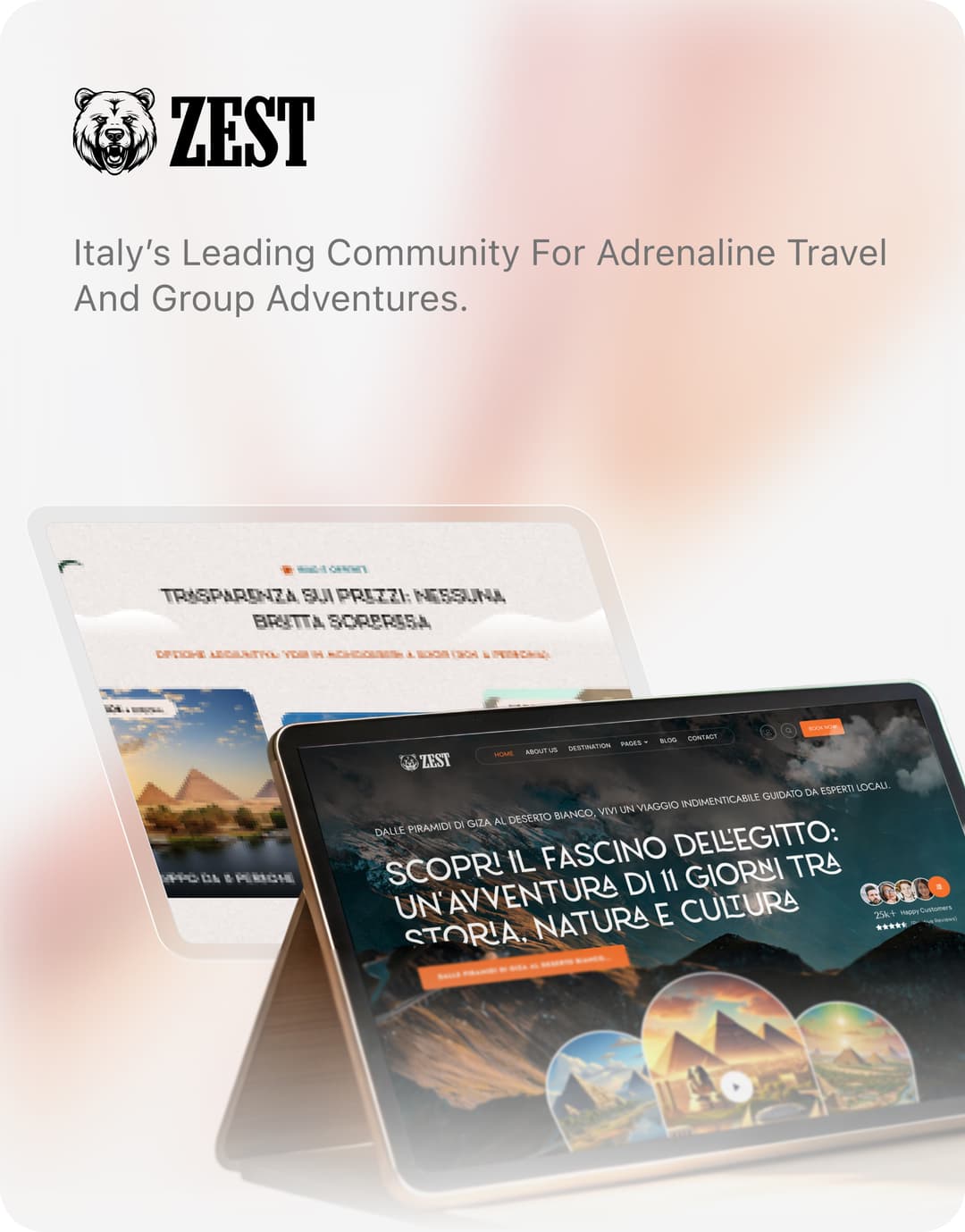





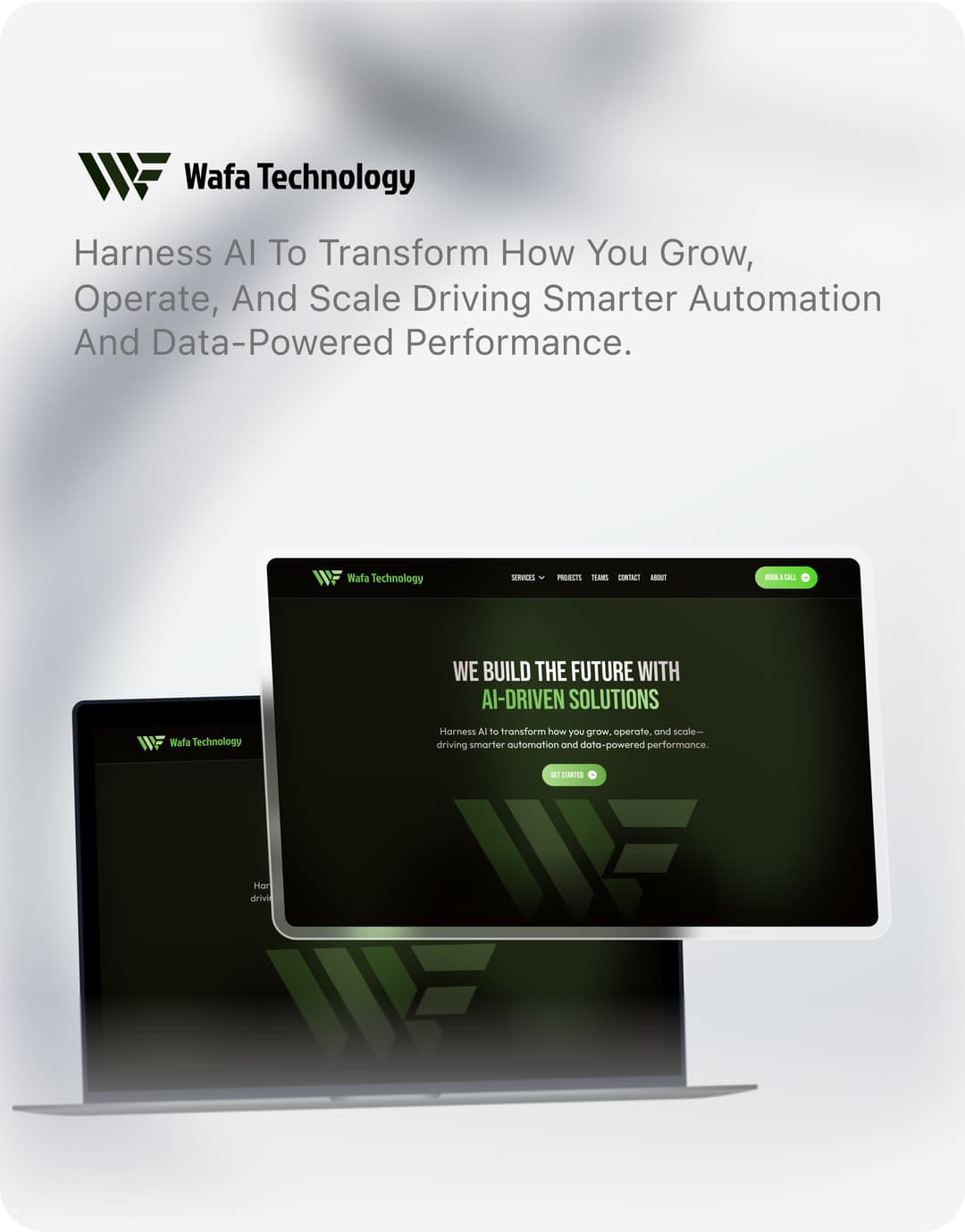


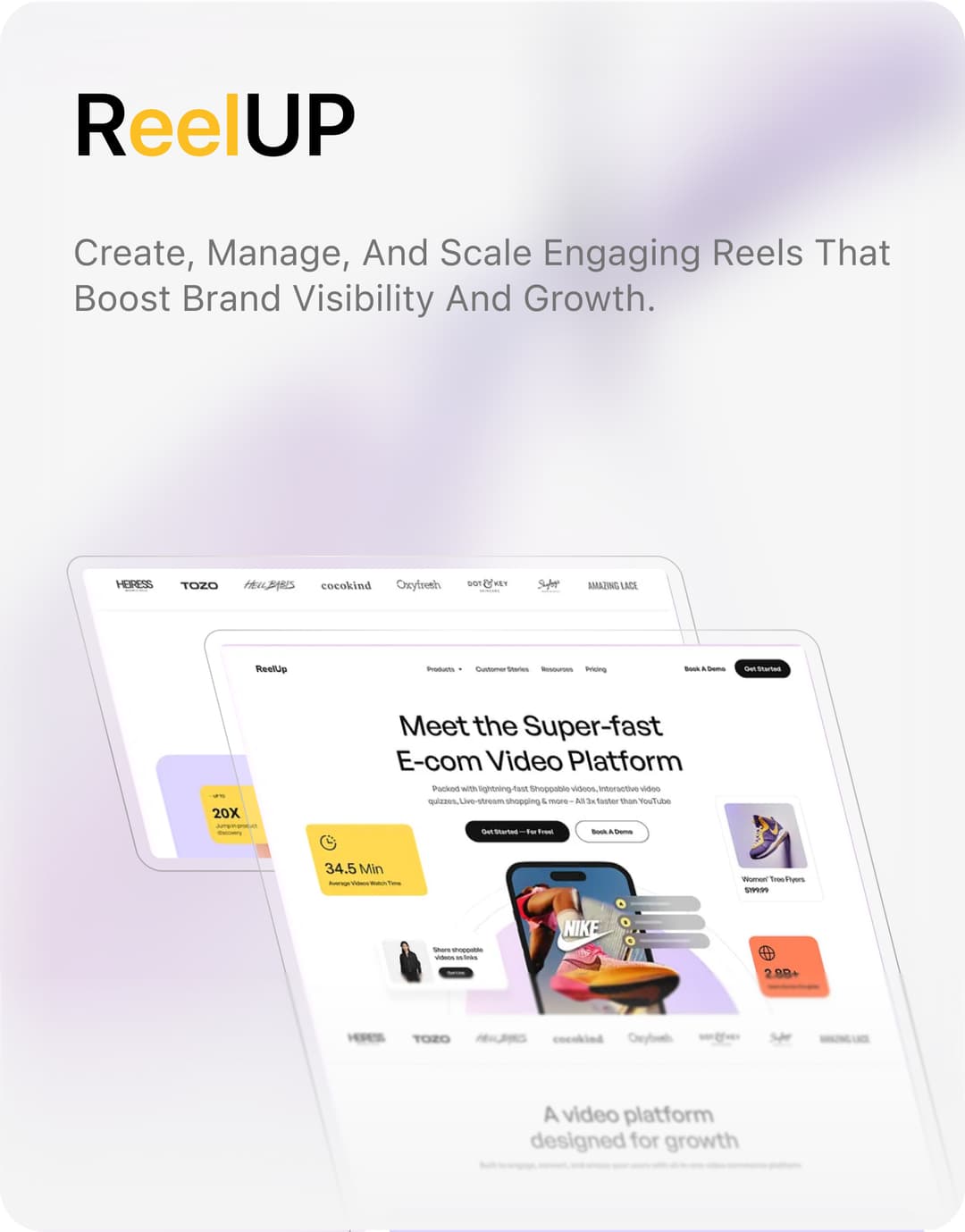


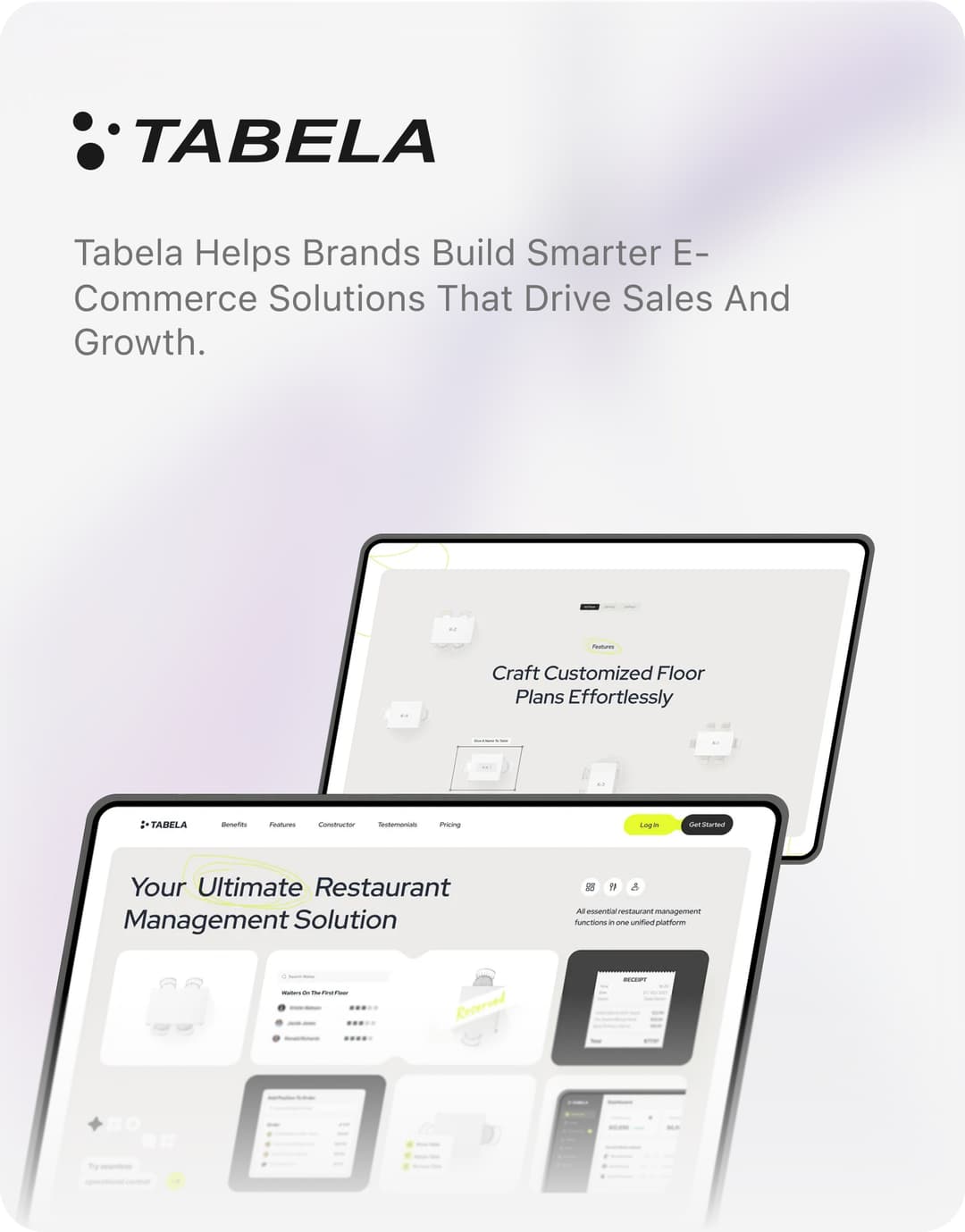


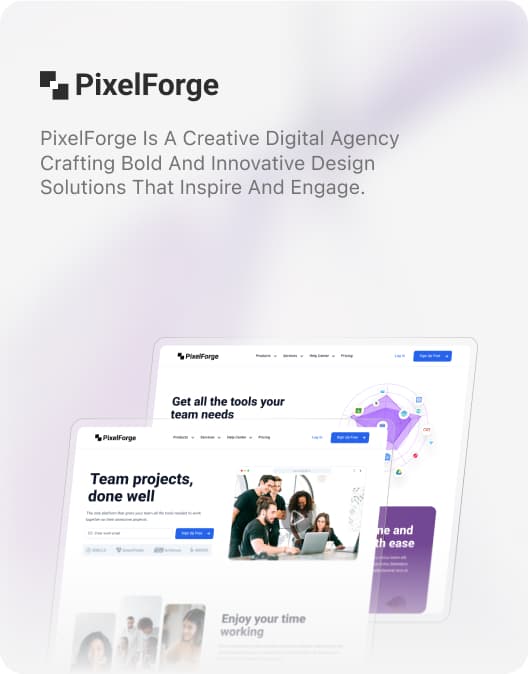


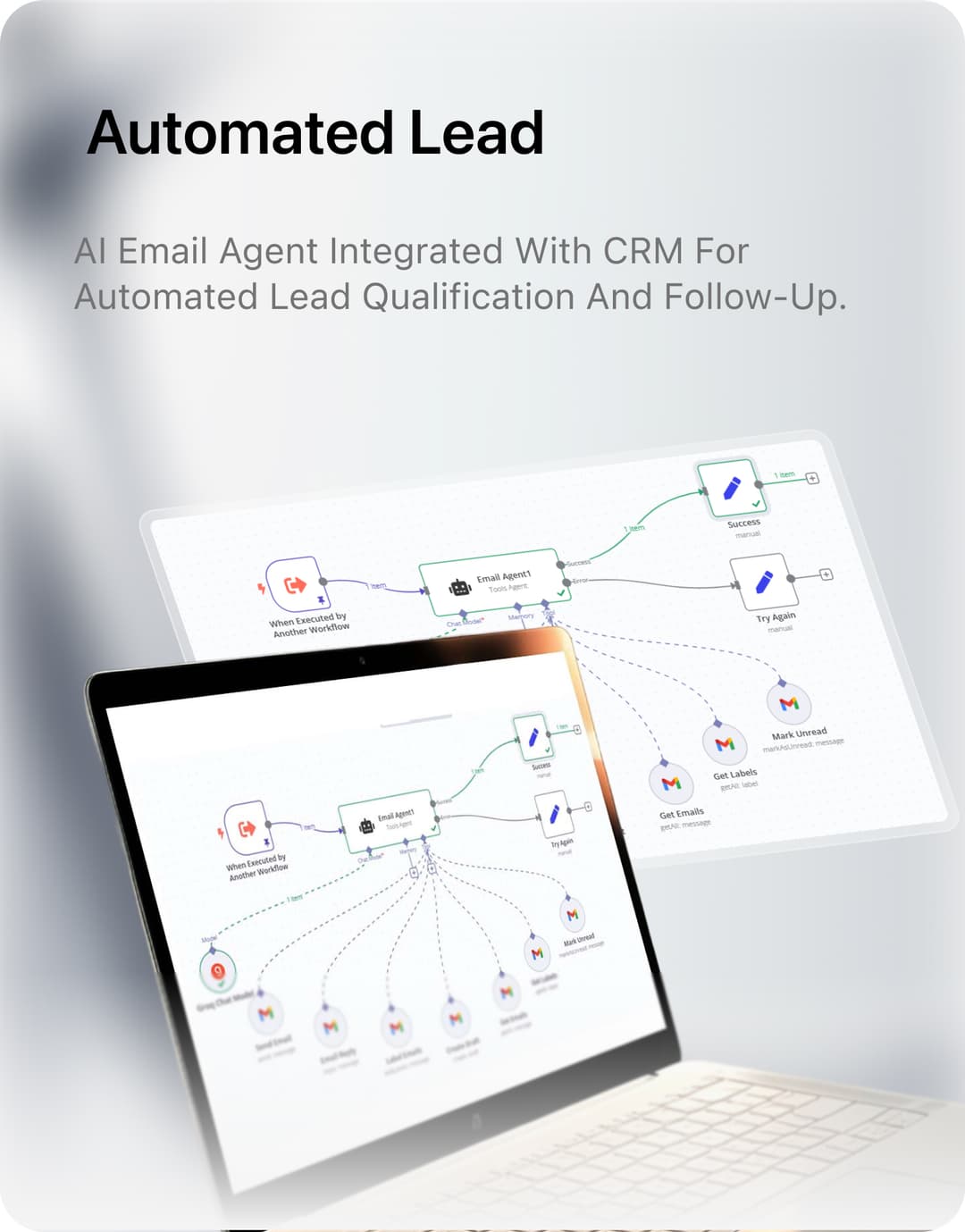
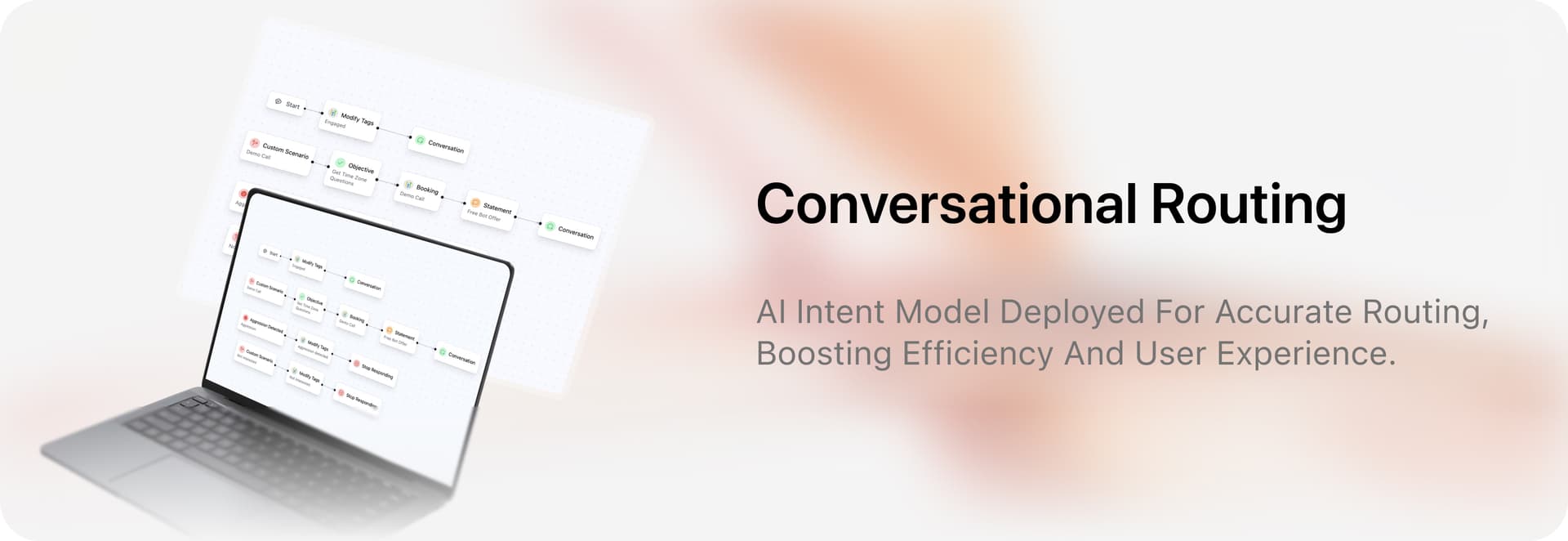
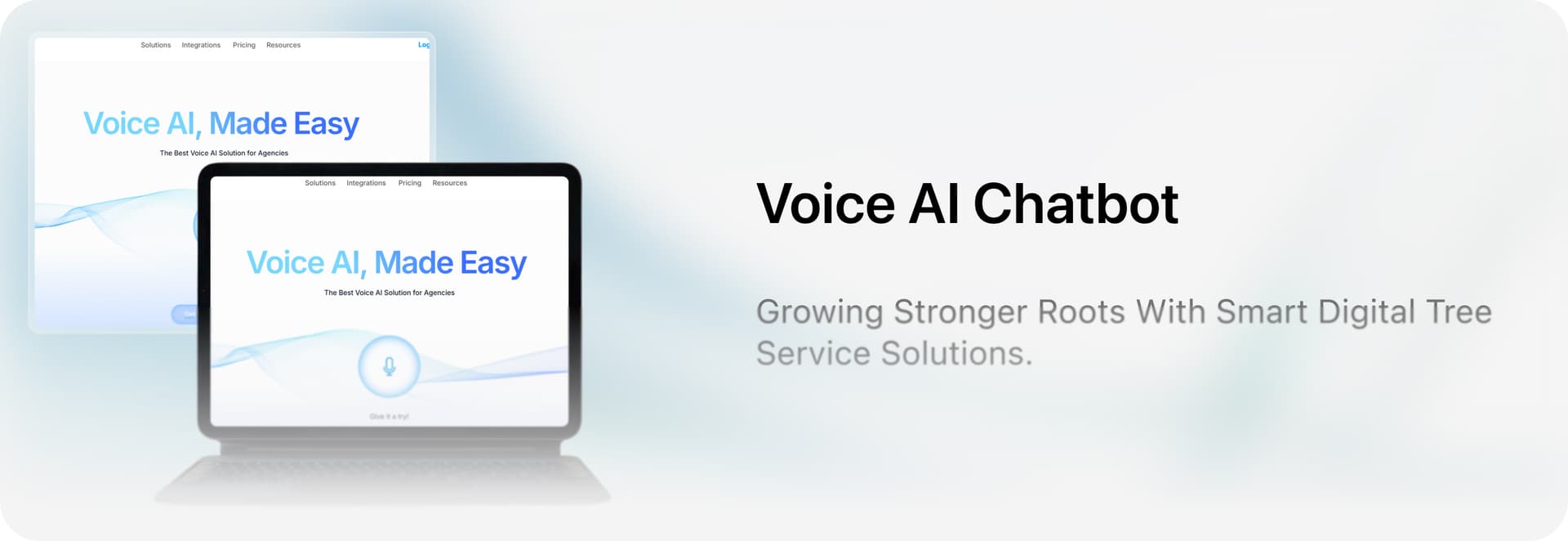
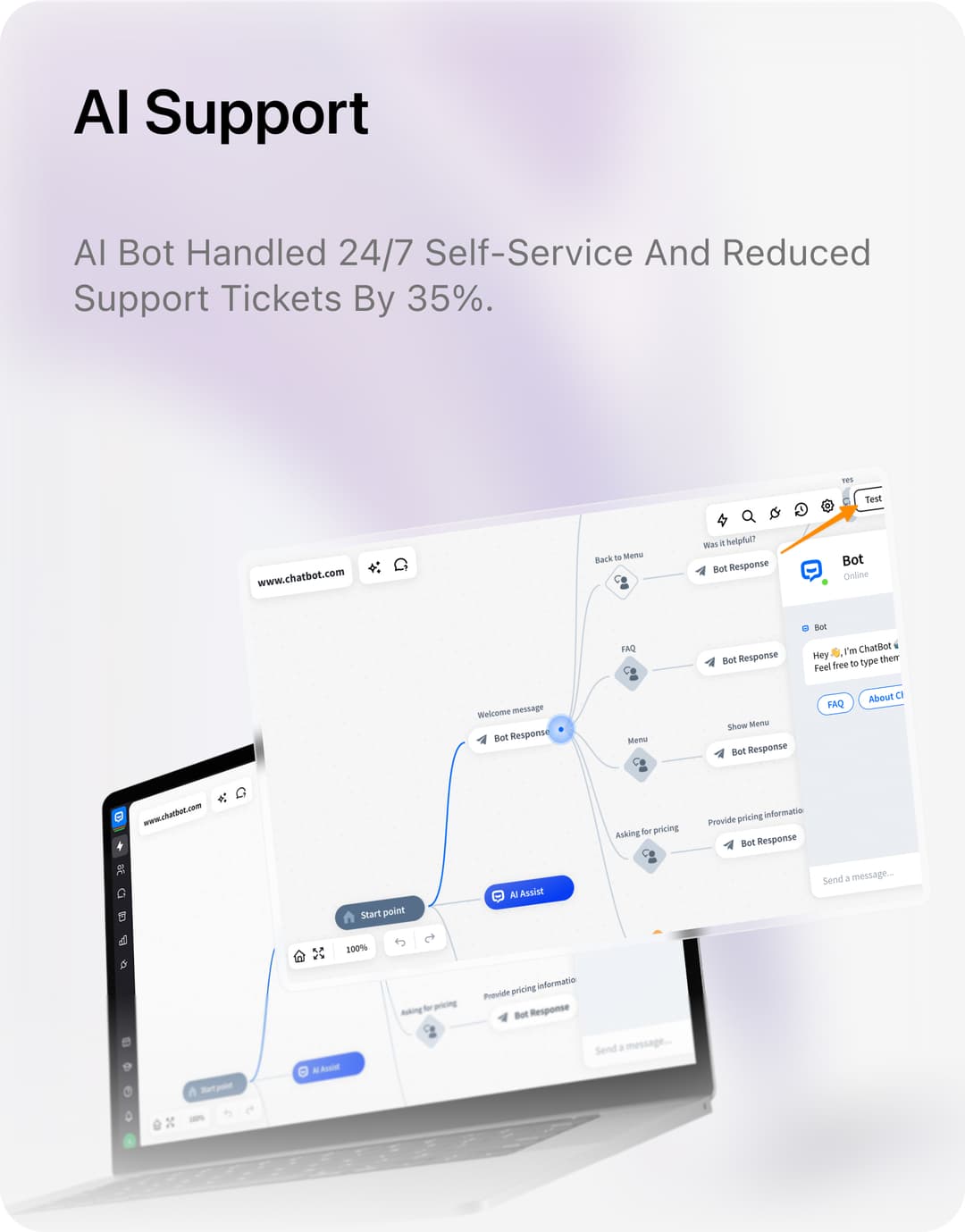


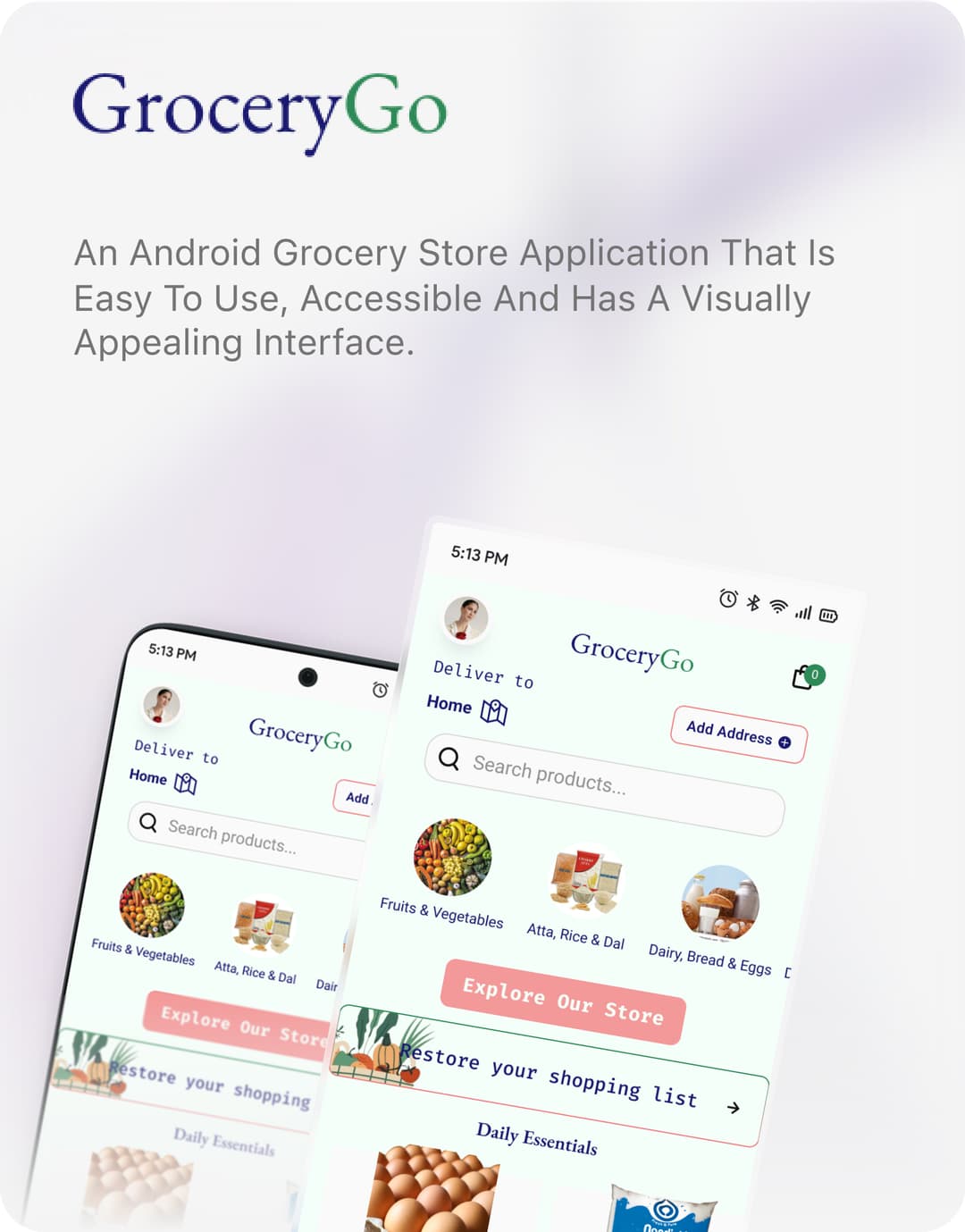
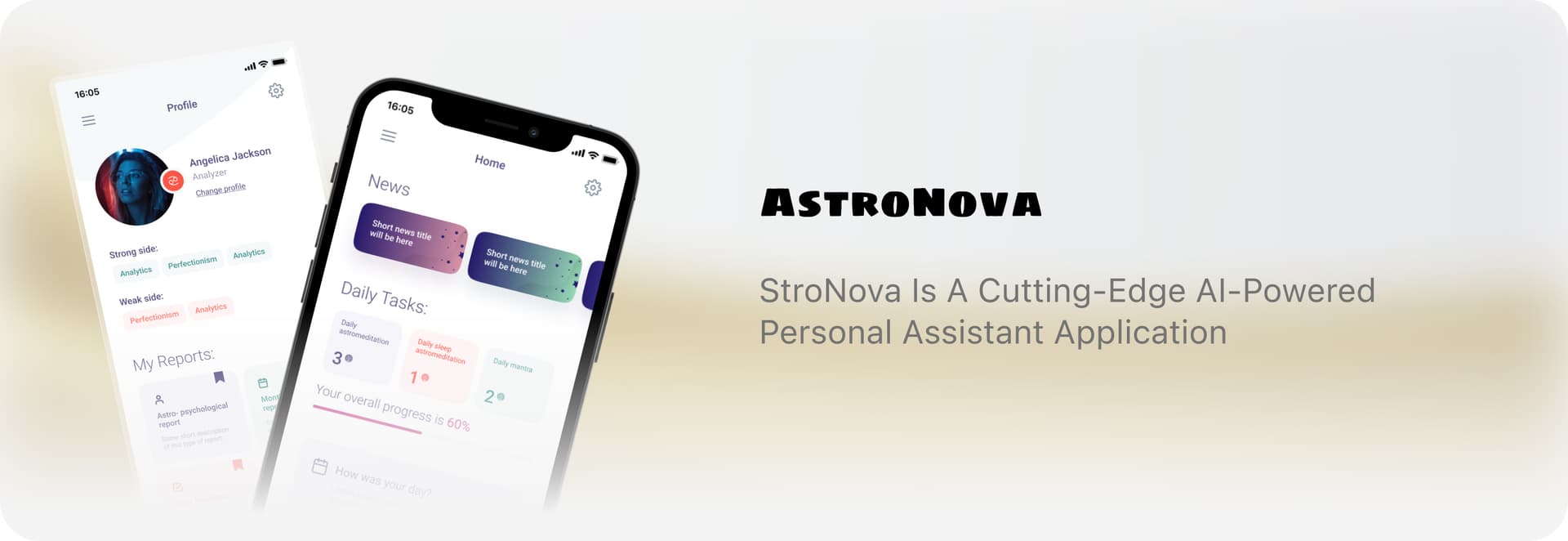






































































































































Upwork Success Stories
That Speak For Themselves
At Octopi Digital LLC, we take pride in our proven success on Upwork, backed by consistent results, client trust, and top-rated performance.

Top-Rated
& Verified Agency on Upwork

4,600+ Hours
of trusted delivery in last year

120+ Projects
delivered with excellence

100%
positive client satisfaction
Stories of Transformation and Growth

I really appreciate your consistent communication, it helps me a lot since I'm not very tech-savvy. You always keep me informed, which makes me feel confident about my investment. I'd rate you a 10 the numbers don't lie, and if they keep growing, you're doing great!

It's been amazing working with Octopi Digital. The team's quality, communication, and responsiveness are outstanding. You always go above and beyond to get things done. Highly recommend you all, and look forward to many more years together!

Hi, I'm Ariana Medina, and I just want to thank the Octopi team for being a true game-changer. Their quality, professionalism, and value stand out above the rest. I knew within a day they were the right choice. Grateful for all their support and excited to keep working together!

The Octopi Digital team does an outstanding job. I trust them with my work and my clients' projects. As a marketing agency owner, I can confidently say they deliver top-quality results across web design, coding, and more. Highly recommend them!

Hi Jewel, I just want to thank you for all your help this year. Meeting you has truly been a game-changer. Your accuracy, speed, and dedication have made a huge impact on my projects. I look forward to continuing our collaboration and achieving even more together in 2025!

Huge thanks to the Octopi team for making my online course journey so smooth. Their technical expertise and constant support, no matter the time, made all the difference. I'm truly grateful and highly recommend their services!

Happy anniversary and happy New Year to my amazing Bangladeshi team! I'm so grateful to Jewel, Yaml, Iman, and everyone who brings talent, integrity, and dedication to our work. It's an honor to build and grow this company with you may God bless all our efforts, In sha allah.

Hi, I'm Lorraine McDonald from Disruptive Marketing. Octopi Digital helped me build my website, refine my messaging, and adapt as AI transformed marketing. They're responsive, knowledgeable, and an incredible team to work with!

Happy three-year anniversary, Octopi team! You've made my husband thrilled with your partnership, communication, and delivery, which makes me a very happy wife. I'm excited for all we'll achieve together in the future and grateful for your incredible team!

Huge thanks to Jewel and the Octopi Digital team for being the backbone of my business this year. Their exceptional work and timely delivery make them a top choice for digital marketing. Excited for an even bigger 2025 and beyond!

Working with Octopi Digital has been a fantastic experience. Their professionalism, expertise, and clear communication make every step seamless. We're genuinely impressed and highly recommend their talented team!

I really appreciate your consistent communication, it helps me a lot since I'm not very tech-savvy. You always keep me informed, which makes me feel confident about my investment. I'd rate you a 10 the numbers don't lie, and if they keep growing, you're doing great!

It's been amazing working with Octopi Digital. The team's quality, communication, and responsiveness are outstanding. You always go above and beyond to get things done. Highly recommend you all, and look forward to many more years together!

Hi, I'm Ariana Medina, and I just want to thank the Octopi team for being a true game-changer. Their quality, professionalism, and value stand out above the rest. I knew within a day they were the right choice. Grateful for all their support and excited to keep working together!

The Octopi Digital team does an outstanding job. I trust them with my work and my clients' projects. As a marketing agency owner, I can confidently say they deliver top-quality results across web design, coding, and more. Highly recommend them!

Hi Jewel, I just want to thank you for all your help this year. Meeting you has truly been a game-changer. Your accuracy, speed, and dedication have made a huge impact on my projects. I look forward to continuing our collaboration and achieving even more together in 2025!

Huge thanks to the Octopi team for making my online course journey so smooth. Their technical expertise and constant support, no matter the time, made all the difference. I'm truly grateful and highly recommend their services!

Happy anniversary and happy New Year to my amazing Bangladeshi team! I'm so grateful to Jewel, Yaml, Iman, and everyone who brings talent, integrity, and dedication to our work. It's an honor to build and grow this company with you may God bless all our efforts, In sha allah.

Hi, I'm Lorraine McDonald from Disruptive Marketing. Octopi Digital helped me build my website, refine my messaging, and adapt as AI transformed marketing. They're responsive, knowledgeable, and an incredible team to work with!

Happy three-year anniversary, Octopi team! You've made my husband thrilled with your partnership, communication, and delivery, which makes me a very happy wife. I'm excited for all we'll achieve together in the future and grateful for your incredible team!

Huge thanks to Jewel and the Octopi Digital team for being the backbone of my business this year. Their exceptional work and timely delivery make them a top choice for digital marketing. Excited for an even bigger 2025 and beyond!

Working with Octopi Digital has been a fantastic experience. Their professionalism, expertise, and clear communication make every step seamless. We're genuinely impressed and highly recommend their talented team!

I really appreciate your consistent communication, it helps me a lot since I'm not very tech-savvy. You always keep me informed, which makes me feel confident about my investment. I'd rate you a 10 the numbers don't lie, and if they keep growing, you're doing great!

It's been amazing working with Octopi Digital. The team's quality, communication, and responsiveness are outstanding. You always go above and beyond to get things done. Highly recommend you all, and look forward to many more years together!

Hi, I'm Ariana Medina, and I just want to thank the Octopi team for being a true game-changer. Their quality, professionalism, and value stand out above the rest. I knew within a day they were the right choice. Grateful for all their support and excited to keep working together!

The Octopi Digital team does an outstanding job. I trust them with my work and my clients' projects. As a marketing agency owner, I can confidently say they deliver top-quality results across web design, coding, and more. Highly recommend them!

Hi Jewel, I just want to thank you for all your help this year. Meeting you has truly been a game-changer. Your accuracy, speed, and dedication have made a huge impact on my projects. I look forward to continuing our collaboration and achieving even more together in 2025!

Huge thanks to the Octopi team for making my online course journey so smooth. Their technical expertise and constant support, no matter the time, made all the difference. I'm truly grateful and highly recommend their services!

Happy anniversary and happy New Year to my amazing Bangladeshi team! I'm so grateful to Jewel, Yaml, Iman, and everyone who brings talent, integrity, and dedication to our work. It's an honor to build and grow this company with you may God bless all our efforts, In sha allah.

Hi, I'm Lorraine McDonald from Disruptive Marketing. Octopi Digital helped me build my website, refine my messaging, and adapt as AI transformed marketing. They're responsive, knowledgeable, and an incredible team to work with!

Happy three-year anniversary, Octopi team! You've made my husband thrilled with your partnership, communication, and delivery, which makes me a very happy wife. I'm excited for all we'll achieve together in the future and grateful for your incredible team!

Huge thanks to Jewel and the Octopi Digital team for being the backbone of my business this year. Their exceptional work and timely delivery make them a top choice for digital marketing. Excited for an even bigger 2025 and beyond!

Working with Octopi Digital has been a fantastic experience. Their professionalism, expertise, and clear communication make every step seamless. We're genuinely impressed and highly recommend their talented team!

I really appreciate your consistent communication, it helps me a lot since I'm not very tech-savvy. You always keep me informed, which makes me feel confident about my investment. I'd rate you a 10 the numbers don't lie, and if they keep growing, you're doing great!

It's been amazing working with Octopi Digital. The team's quality, communication, and responsiveness are outstanding. You always go above and beyond to get things done. Highly recommend you all, and look forward to many more years together!

Hi, I'm Ariana Medina, and I just want to thank the Octopi team for being a true game-changer. Their quality, professionalism, and value stand out above the rest. I knew within a day they were the right choice. Grateful for all their support and excited to keep working together!

The Octopi Digital team does an outstanding job. I trust them with my work and my clients' projects. As a marketing agency owner, I can confidently say they deliver top-quality results across web design, coding, and more. Highly recommend them!

Hi Jewel, I just want to thank you for all your help this year. Meeting you has truly been a game-changer. Your accuracy, speed, and dedication have made a huge impact on my projects. I look forward to continuing our collaboration and achieving even more together in 2025!

Huge thanks to the Octopi team for making my online course journey so smooth. Their technical expertise and constant support, no matter the time, made all the difference. I'm truly grateful and highly recommend their services!

Happy anniversary and happy New Year to my amazing Bangladeshi team! I'm so grateful to Jewel, Yaml, Iman, and everyone who brings talent, integrity, and dedication to our work. It's an honor to build and grow this company with you may God bless all our efforts, In sha allah.

Hi, I'm Lorraine McDonald from Disruptive Marketing. Octopi Digital helped me build my website, refine my messaging, and adapt as AI transformed marketing. They're responsive, knowledgeable, and an incredible team to work with!

Happy three-year anniversary, Octopi team! You've made my husband thrilled with your partnership, communication, and delivery, which makes me a very happy wife. I'm excited for all we'll achieve together in the future and grateful for your incredible team!

Huge thanks to Jewel and the Octopi Digital team for being the backbone of my business this year. Their exceptional work and timely delivery make them a top choice for digital marketing. Excited for an even bigger 2025 and beyond!

Working with Octopi Digital has been a fantastic experience. Their professionalism, expertise, and clear communication make every step seamless. We're genuinely impressed and highly recommend their talented team!

I really appreciate your consistent communication, it helps me a lot since I'm not very tech-savvy. You always keep me informed, which makes me feel confident about my investment. I'd rate you a 10 the numbers don't lie, and if they keep growing, you're doing great!

It's been amazing working with Octopi Digital. The team's quality, communication, and responsiveness are outstanding. You always go above and beyond to get things done. Highly recommend you all, and look forward to many more years together!

Hi, I'm Ariana Medina, and I just want to thank the Octopi team for being a true game-changer. Their quality, professionalism, and value stand out above the rest. I knew within a day they were the right choice. Grateful for all their support and excited to keep working together!

The Octopi Digital team does an outstanding job. I trust them with my work and my clients' projects. As a marketing agency owner, I can confidently say they deliver top-quality results across web design, coding, and more. Highly recommend them!

Hi Jewel, I just want to thank you for all your help this year. Meeting you has truly been a game-changer. Your accuracy, speed, and dedication have made a huge impact on my projects. I look forward to continuing our collaboration and achieving even more together in 2025!

Huge thanks to the Octopi team for making my online course journey so smooth. Their technical expertise and constant support, no matter the time, made all the difference. I'm truly grateful and highly recommend their services!

Happy anniversary and happy New Year to my amazing Bangladeshi team! I'm so grateful to Jewel, Yaml, Iman, and everyone who brings talent, integrity, and dedication to our work. It's an honor to build and grow this company with you may God bless all our efforts, In sha allah.

Hi, I'm Lorraine McDonald from Disruptive Marketing. Octopi Digital helped me build my website, refine my messaging, and adapt as AI transformed marketing. They're responsive, knowledgeable, and an incredible team to work with!

Happy three-year anniversary, Octopi team! You've made my husband thrilled with your partnership, communication, and delivery, which makes me a very happy wife. I'm excited for all we'll achieve together in the future and grateful for your incredible team!

Huge thanks to Jewel and the Octopi Digital team for being the backbone of my business this year. Their exceptional work and timely delivery make them a top choice for digital marketing. Excited for an even bigger 2025 and beyond!

Working with Octopi Digital has been a fantastic experience. Their professionalism, expertise, and clear communication make every step seamless. We're genuinely impressed and highly recommend their talented team!

I really appreciate your consistent communication, it helps me a lot since I'm not very tech-savvy. You always keep me informed, which makes me feel confident about my investment. I'd rate you a 10 the numbers don't lie, and if they keep growing, you're doing great!

It's been amazing working with Octopi Digital. The team's quality, communication, and responsiveness are outstanding. You always go above and beyond to get things done. Highly recommend you all, and look forward to many more years together!

Hi, I'm Ariana Medina, and I just want to thank the Octopi team for being a true game-changer. Their quality, professionalism, and value stand out above the rest. I knew within a day they were the right choice. Grateful for all their support and excited to keep working together!

The Octopi Digital team does an outstanding job. I trust them with my work and my clients' projects. As a marketing agency owner, I can confidently say they deliver top-quality results across web design, coding, and more. Highly recommend them!

Hi Jewel, I just want to thank you for all your help this year. Meeting you has truly been a game-changer. Your accuracy, speed, and dedication have made a huge impact on my projects. I look forward to continuing our collaboration and achieving even more together in 2025!

Huge thanks to the Octopi team for making my online course journey so smooth. Their technical expertise and constant support, no matter the time, made all the difference. I'm truly grateful and highly recommend their services!

Happy anniversary and happy New Year to my amazing Bangladeshi team! I'm so grateful to Jewel, Yaml, Iman, and everyone who brings talent, integrity, and dedication to our work. It's an honor to build and grow this company with you may God bless all our efforts, In sha allah.

Hi, I'm Lorraine McDonald from Disruptive Marketing. Octopi Digital helped me build my website, refine my messaging, and adapt as AI transformed marketing. They're responsive, knowledgeable, and an incredible team to work with!

Happy three-year anniversary, Octopi team! You've made my husband thrilled with your partnership, communication, and delivery, which makes me a very happy wife. I'm excited for all we'll achieve together in the future and grateful for your incredible team!

Huge thanks to Jewel and the Octopi Digital team for being the backbone of my business this year. Their exceptional work and timely delivery make them a top choice for digital marketing. Excited for an even bigger 2025 and beyond!

Working with Octopi Digital has been a fantastic experience. Their professionalism, expertise, and clear communication make every step seamless. We're genuinely impressed and highly recommend their talented team!

I really appreciate your consistent communication, it helps me a lot since I'm not very tech-savvy. You always keep me informed, which makes me feel confident about my investment. I'd rate you a 10 the numbers don't lie, and if they keep growing, you're doing great!

It's been amazing working with Octopi Digital. The team's quality, communication, and responsiveness are outstanding. You always go above and beyond to get things done. Highly recommend you all, and look forward to many more years together!

Hi, I'm Ariana Medina, and I just want to thank the Octopi team for being a true game-changer. Their quality, professionalism, and value stand out above the rest. I knew within a day they were the right choice. Grateful for all their support and excited to keep working together!

The Octopi Digital team does an outstanding job. I trust them with my work and my clients' projects. As a marketing agency owner, I can confidently say they deliver top-quality results across web design, coding, and more. Highly recommend them!

Hi Jewel, I just want to thank you for all your help this year. Meeting you has truly been a game-changer. Your accuracy, speed, and dedication have made a huge impact on my projects. I look forward to continuing our collaboration and achieving even more together in 2025!

Huge thanks to the Octopi team for making my online course journey so smooth. Their technical expertise and constant support, no matter the time, made all the difference. I'm truly grateful and highly recommend their services!

Happy anniversary and happy New Year to my amazing Bangladeshi team! I'm so grateful to Jewel, Yaml, Iman, and everyone who brings talent, integrity, and dedication to our work. It's an honor to build and grow this company with you may God bless all our efforts, In sha allah.

Hi, I'm Lorraine McDonald from Disruptive Marketing. Octopi Digital helped me build my website, refine my messaging, and adapt as AI transformed marketing. They're responsive, knowledgeable, and an incredible team to work with!

Happy three-year anniversary, Octopi team! You've made my husband thrilled with your partnership, communication, and delivery, which makes me a very happy wife. I'm excited for all we'll achieve together in the future and grateful for your incredible team!

Huge thanks to Jewel and the Octopi Digital team for being the backbone of my business this year. Their exceptional work and timely delivery make them a top choice for digital marketing. Excited for an even bigger 2025 and beyond!

Working with Octopi Digital has been a fantastic experience. Their professionalism, expertise, and clear communication make every step seamless. We're genuinely impressed and highly recommend their talented team!

I really appreciate your consistent communication, it helps me a lot since I'm not very tech-savvy. You always keep me informed, which makes me feel confident about my investment. I'd rate you a 10 the numbers don't lie, and if they keep growing, you're doing great!

It's been amazing working with Octopi Digital. The team's quality, communication, and responsiveness are outstanding. You always go above and beyond to get things done. Highly recommend you all, and look forward to many more years together!

Hi, I'm Ariana Medina, and I just want to thank the Octopi team for being a true game-changer. Their quality, professionalism, and value stand out above the rest. I knew within a day they were the right choice. Grateful for all their support and excited to keep working together!

The Octopi Digital team does an outstanding job. I trust them with my work and my clients' projects. As a marketing agency owner, I can confidently say they deliver top-quality results across web design, coding, and more. Highly recommend them!

Hi Jewel, I just want to thank you for all your help this year. Meeting you has truly been a game-changer. Your accuracy, speed, and dedication have made a huge impact on my projects. I look forward to continuing our collaboration and achieving even more together in 2025!

Huge thanks to the Octopi team for making my online course journey so smooth. Their technical expertise and constant support, no matter the time, made all the difference. I'm truly grateful and highly recommend their services!

Happy anniversary and happy New Year to my amazing Bangladeshi team! I'm so grateful to Jewel, Yaml, Iman, and everyone who brings talent, integrity, and dedication to our work. It's an honor to build and grow this company with you may God bless all our efforts, In sha allah.

Hi, I'm Lorraine McDonald from Disruptive Marketing. Octopi Digital helped me build my website, refine my messaging, and adapt as AI transformed marketing. They're responsive, knowledgeable, and an incredible team to work with!

Happy three-year anniversary, Octopi team! You've made my husband thrilled with your partnership, communication, and delivery, which makes me a very happy wife. I'm excited for all we'll achieve together in the future and grateful for your incredible team!

Huge thanks to Jewel and the Octopi Digital team for being the backbone of my business this year. Their exceptional work and timely delivery make them a top choice for digital marketing. Excited for an even bigger 2025 and beyond!

Working with Octopi Digital has been a fantastic experience. Their professionalism, expertise, and clear communication make every step seamless. We're genuinely impressed and highly recommend their talented team!

I really appreciate your consistent communication, it helps me a lot since I'm not very tech-savvy. You always keep me informed, which makes me feel confident about my investment. I'd rate you a 10 the numbers don't lie, and if they keep growing, you're doing great!

It's been amazing working with Octopi Digital. The team's quality, communication, and responsiveness are outstanding. You always go above and beyond to get things done. Highly recommend you all, and look forward to many more years together!

Hi, I'm Ariana Medina, and I just want to thank the Octopi team for being a true game-changer. Their quality, professionalism, and value stand out above the rest. I knew within a day they were the right choice. Grateful for all their support and excited to keep working together!

The Octopi Digital team does an outstanding job. I trust them with my work and my clients' projects. As a marketing agency owner, I can confidently say they deliver top-quality results across web design, coding, and more. Highly recommend them!

Hi Jewel, I just want to thank you for all your help this year. Meeting you has truly been a game-changer. Your accuracy, speed, and dedication have made a huge impact on my projects. I look forward to continuing our collaboration and achieving even more together in 2025!

Huge thanks to the Octopi team for making my online course journey so smooth. Their technical expertise and constant support, no matter the time, made all the difference. I'm truly grateful and highly recommend their services!

Happy anniversary and happy New Year to my amazing Bangladeshi team! I'm so grateful to Jewel, Yaml, Iman, and everyone who brings talent, integrity, and dedication to our work. It's an honor to build and grow this company with you may God bless all our efforts, In sha allah.

Hi, I'm Lorraine McDonald from Disruptive Marketing. Octopi Digital helped me build my website, refine my messaging, and adapt as AI transformed marketing. They're responsive, knowledgeable, and an incredible team to work with!

Happy three-year anniversary, Octopi team! You've made my husband thrilled with your partnership, communication, and delivery, which makes me a very happy wife. I'm excited for all we'll achieve together in the future and grateful for your incredible team!

Huge thanks to Jewel and the Octopi Digital team for being the backbone of my business this year. Their exceptional work and timely delivery make them a top choice for digital marketing. Excited for an even bigger 2025 and beyond!

Working with Octopi Digital has been a fantastic experience. Their professionalism, expertise, and clear communication make every step seamless. We're genuinely impressed and highly recommend their talented team!

I really appreciate your consistent communication, it helps me a lot since I'm not very tech-savvy. You always keep me informed, which makes me feel confident about my investment. I'd rate you a 10 the numbers don't lie, and if they keep growing, you're doing great!

It's been amazing working with Octopi Digital. The team's quality, communication, and responsiveness are outstanding. You always go above and beyond to get things done. Highly recommend you all, and look forward to many more years together!

Hi, I'm Ariana Medina, and I just want to thank the Octopi team for being a true game-changer. Their quality, professionalism, and value stand out above the rest. I knew within a day they were the right choice. Grateful for all their support and excited to keep working together!

The Octopi Digital team does an outstanding job. I trust them with my work and my clients' projects. As a marketing agency owner, I can confidently say they deliver top-quality results across web design, coding, and more. Highly recommend them!

Hi Jewel, I just want to thank you for all your help this year. Meeting you has truly been a game-changer. Your accuracy, speed, and dedication have made a huge impact on my projects. I look forward to continuing our collaboration and achieving even more together in 2025!

Huge thanks to the Octopi team for making my online course journey so smooth. Their technical expertise and constant support, no matter the time, made all the difference. I'm truly grateful and highly recommend their services!

Happy anniversary and happy New Year to my amazing Bangladeshi team! I'm so grateful to Jewel, Yaml, Iman, and everyone who brings talent, integrity, and dedication to our work. It's an honor to build and grow this company with you may God bless all our efforts, In sha allah.

Hi, I'm Lorraine McDonald from Disruptive Marketing. Octopi Digital helped me build my website, refine my messaging, and adapt as AI transformed marketing. They're responsive, knowledgeable, and an incredible team to work with!

Happy three-year anniversary, Octopi team! You've made my husband thrilled with your partnership, communication, and delivery, which makes me a very happy wife. I'm excited for all we'll achieve together in the future and grateful for your incredible team!

Huge thanks to Jewel and the Octopi Digital team for being the backbone of my business this year. Their exceptional work and timely delivery make them a top choice for digital marketing. Excited for an even bigger 2025 and beyond!

Working with Octopi Digital has been a fantastic experience. Their professionalism, expertise, and clear communication make every step seamless. We're genuinely impressed and highly recommend their talented team!

I really appreciate your consistent communication, it helps me a lot since I'm not very tech-savvy. You always keep me informed, which makes me feel confident about my investment. I'd rate you a 10 the numbers don't lie, and if they keep growing, you're doing great!

It's been amazing working with Octopi Digital. The team's quality, communication, and responsiveness are outstanding. You always go above and beyond to get things done. Highly recommend you all, and look forward to many more years together!

Hi, I'm Ariana Medina, and I just want to thank the Octopi team for being a true game-changer. Their quality, professionalism, and value stand out above the rest. I knew within a day they were the right choice. Grateful for all their support and excited to keep working together!

The Octopi Digital team does an outstanding job. I trust them with my work and my clients' projects. As a marketing agency owner, I can confidently say they deliver top-quality results across web design, coding, and more. Highly recommend them!

Hi Jewel, I just want to thank you for all your help this year. Meeting you has truly been a game-changer. Your accuracy, speed, and dedication have made a huge impact on my projects. I look forward to continuing our collaboration and achieving even more together in 2025!

Huge thanks to the Octopi team for making my online course journey so smooth. Their technical expertise and constant support, no matter the time, made all the difference. I'm truly grateful and highly recommend their services!

Happy anniversary and happy New Year to my amazing Bangladeshi team! I'm so grateful to Jewel, Yaml, Iman, and everyone who brings talent, integrity, and dedication to our work. It's an honor to build and grow this company with you may God bless all our efforts, In sha allah.

Hi, I'm Lorraine McDonald from Disruptive Marketing. Octopi Digital helped me build my website, refine my messaging, and adapt as AI transformed marketing. They're responsive, knowledgeable, and an incredible team to work with!

Happy three-year anniversary, Octopi team! You've made my husband thrilled with your partnership, communication, and delivery, which makes me a very happy wife. I'm excited for all we'll achieve together in the future and grateful for your incredible team!

Huge thanks to Jewel and the Octopi Digital team for being the backbone of my business this year. Their exceptional work and timely delivery make them a top choice for digital marketing. Excited for an even bigger 2025 and beyond!

Working with Octopi Digital has been a fantastic experience. Their professionalism, expertise, and clear communication make every step seamless. We're genuinely impressed and highly recommend their talented team!

I really appreciate your consistent communication, it helps me a lot since I'm not very tech-savvy. You always keep me informed, which makes me feel confident about my investment. I'd rate you a 10 the numbers don't lie, and if they keep growing, you're doing great!

It's been amazing working with Octopi Digital. The team's quality, communication, and responsiveness are outstanding. You always go above and beyond to get things done. Highly recommend you all, and look forward to many more years together!

Hi, I'm Ariana Medina, and I just want to thank the Octopi team for being a true game-changer. Their quality, professionalism, and value stand out above the rest. I knew within a day they were the right choice. Grateful for all their support and excited to keep working together!

The Octopi Digital team does an outstanding job. I trust them with my work and my clients' projects. As a marketing agency owner, I can confidently say they deliver top-quality results across web design, coding, and more. Highly recommend them!

Hi Jewel, I just want to thank you for all your help this year. Meeting you has truly been a game-changer. Your accuracy, speed, and dedication have made a huge impact on my projects. I look forward to continuing our collaboration and achieving even more together in 2025!

Huge thanks to the Octopi team for making my online course journey so smooth. Their technical expertise and constant support, no matter the time, made all the difference. I'm truly grateful and highly recommend their services!

Happy anniversary and happy New Year to my amazing Bangladeshi team! I'm so grateful to Jewel, Yaml, Iman, and everyone who brings talent, integrity, and dedication to our work. It's an honor to build and grow this company with you may God bless all our efforts, In sha allah.

Hi, I'm Lorraine McDonald from Disruptive Marketing. Octopi Digital helped me build my website, refine my messaging, and adapt as AI transformed marketing. They're responsive, knowledgeable, and an incredible team to work with!

Happy three-year anniversary, Octopi team! You've made my husband thrilled with your partnership, communication, and delivery, which makes me a very happy wife. I'm excited for all we'll achieve together in the future and grateful for your incredible team!

Huge thanks to Jewel and the Octopi Digital team for being the backbone of my business this year. Their exceptional work and timely delivery make them a top choice for digital marketing. Excited for an even bigger 2025 and beyond!

Working with Octopi Digital has been a fantastic experience. Their professionalism, expertise, and clear communication make every step seamless. We're genuinely impressed and highly recommend their talented team!

I really appreciate your consistent communication, it helps me a lot since I'm not very tech-savvy. You always keep me informed, which makes me feel confident about my investment. I'd rate you a 10 the numbers don't lie, and if they keep growing, you're doing great!

It's been amazing working with Octopi Digital. The team's quality, communication, and responsiveness are outstanding. You always go above and beyond to get things done. Highly recommend you all, and look forward to many more years together!

Hi, I'm Ariana Medina, and I just want to thank the Octopi team for being a true game-changer. Their quality, professionalism, and value stand out above the rest. I knew within a day they were the right choice. Grateful for all their support and excited to keep working together!

The Octopi Digital team does an outstanding job. I trust them with my work and my clients' projects. As a marketing agency owner, I can confidently say they deliver top-quality results across web design, coding, and more. Highly recommend them!

Hi Jewel, I just want to thank you for all your help this year. Meeting you has truly been a game-changer. Your accuracy, speed, and dedication have made a huge impact on my projects. I look forward to continuing our collaboration and achieving even more together in 2025!

Huge thanks to the Octopi team for making my online course journey so smooth. Their technical expertise and constant support, no matter the time, made all the difference. I'm truly grateful and highly recommend their services!

Happy anniversary and happy New Year to my amazing Bangladeshi team! I'm so grateful to Jewel, Yaml, Iman, and everyone who brings talent, integrity, and dedication to our work. It's an honor to build and grow this company with you may God bless all our efforts, In sha allah.

Hi, I'm Lorraine McDonald from Disruptive Marketing. Octopi Digital helped me build my website, refine my messaging, and adapt as AI transformed marketing. They're responsive, knowledgeable, and an incredible team to work with!

Happy three-year anniversary, Octopi team! You've made my husband thrilled with your partnership, communication, and delivery, which makes me a very happy wife. I'm excited for all we'll achieve together in the future and grateful for your incredible team!

Huge thanks to Jewel and the Octopi Digital team for being the backbone of my business this year. Their exceptional work and timely delivery make them a top choice for digital marketing. Excited for an even bigger 2025 and beyond!

Working with Octopi Digital has been a fantastic experience. Their professionalism, expertise, and clear communication make every step seamless. We're genuinely impressed and highly recommend their talented team!

I really appreciate your consistent communication, it helps me a lot since I'm not very tech-savvy. You always keep me informed, which makes me feel confident about my investment. I'd rate you a 10 the numbers don't lie, and if they keep growing, you're doing great!

It's been amazing working with Octopi Digital. The team's quality, communication, and responsiveness are outstanding. You always go above and beyond to get things done. Highly recommend you all, and look forward to many more years together!

Hi, I'm Ariana Medina, and I just want to thank the Octopi team for being a true game-changer. Their quality, professionalism, and value stand out above the rest. I knew within a day they were the right choice. Grateful for all their support and excited to keep working together!

The Octopi Digital team does an outstanding job. I trust them with my work and my clients' projects. As a marketing agency owner, I can confidently say they deliver top-quality results across web design, coding, and more. Highly recommend them!

Hi Jewel, I just want to thank you for all your help this year. Meeting you has truly been a game-changer. Your accuracy, speed, and dedication have made a huge impact on my projects. I look forward to continuing our collaboration and achieving even more together in 2025!

Huge thanks to the Octopi team for making my online course journey so smooth. Their technical expertise and constant support, no matter the time, made all the difference. I'm truly grateful and highly recommend their services!

Happy anniversary and happy New Year to my amazing Bangladeshi team! I'm so grateful to Jewel, Yaml, Iman, and everyone who brings talent, integrity, and dedication to our work. It's an honor to build and grow this company with you may God bless all our efforts, In sha allah.

Hi, I'm Lorraine McDonald from Disruptive Marketing. Octopi Digital helped me build my website, refine my messaging, and adapt as AI transformed marketing. They're responsive, knowledgeable, and an incredible team to work with!

Happy three-year anniversary, Octopi team! You've made my husband thrilled with your partnership, communication, and delivery, which makes me a very happy wife. I'm excited for all we'll achieve together in the future and grateful for your incredible team!

Huge thanks to Jewel and the Octopi Digital team for being the backbone of my business this year. Their exceptional work and timely delivery make them a top choice for digital marketing. Excited for an even bigger 2025 and beyond!

Working with Octopi Digital has been a fantastic experience. Their professionalism, expertise, and clear communication make every step seamless. We're genuinely impressed and highly recommend their talented team!

I really appreciate your consistent communication, it helps me a lot since I'm not very tech-savvy. You always keep me informed, which makes me feel confident about my investment. I'd rate you a 10 the numbers don't lie, and if they keep growing, you're doing great!

It's been amazing working with Octopi Digital. The team's quality, communication, and responsiveness are outstanding. You always go above and beyond to get things done. Highly recommend you all, and look forward to many more years together!

Hi, I'm Ariana Medina, and I just want to thank the Octopi team for being a true game-changer. Their quality, professionalism, and value stand out above the rest. I knew within a day they were the right choice. Grateful for all their support and excited to keep working together!

The Octopi Digital team does an outstanding job. I trust them with my work and my clients' projects. As a marketing agency owner, I can confidently say they deliver top-quality results across web design, coding, and more. Highly recommend them!

Hi Jewel, I just want to thank you for all your help this year. Meeting you has truly been a game-changer. Your accuracy, speed, and dedication have made a huge impact on my projects. I look forward to continuing our collaboration and achieving even more together in 2025!

Huge thanks to the Octopi team for making my online course journey so smooth. Their technical expertise and constant support, no matter the time, made all the difference. I'm truly grateful and highly recommend their services!

Happy anniversary and happy New Year to my amazing Bangladeshi team! I'm so grateful to Jewel, Yaml, Iman, and everyone who brings talent, integrity, and dedication to our work. It's an honor to build and grow this company with you may God bless all our efforts, In sha allah.

Hi, I'm Lorraine McDonald from Disruptive Marketing. Octopi Digital helped me build my website, refine my messaging, and adapt as AI transformed marketing. They're responsive, knowledgeable, and an incredible team to work with!

Happy three-year anniversary, Octopi team! You've made my husband thrilled with your partnership, communication, and delivery, which makes me a very happy wife. I'm excited for all we'll achieve together in the future and grateful for your incredible team!

Huge thanks to Jewel and the Octopi Digital team for being the backbone of my business this year. Their exceptional work and timely delivery make them a top choice for digital marketing. Excited for an even bigger 2025 and beyond!

Working with Octopi Digital has been a fantastic experience. Their professionalism, expertise, and clear communication make every step seamless. We're genuinely impressed and highly recommend their talented team!

I really appreciate your consistent communication, it helps me a lot since I'm not very tech-savvy. You always keep me informed, which makes me feel confident about my investment. I'd rate you a 10 the numbers don't lie, and if they keep growing, you're doing great!

It's been amazing working with Octopi Digital. The team's quality, communication, and responsiveness are outstanding. You always go above and beyond to get things done. Highly recommend you all, and look forward to many more years together!

Hi, I'm Ariana Medina, and I just want to thank the Octopi team for being a true game-changer. Their quality, professionalism, and value stand out above the rest. I knew within a day they were the right choice. Grateful for all their support and excited to keep working together!

The Octopi Digital team does an outstanding job. I trust them with my work and my clients' projects. As a marketing agency owner, I can confidently say they deliver top-quality results across web design, coding, and more. Highly recommend them!

Hi Jewel, I just want to thank you for all your help this year. Meeting you has truly been a game-changer. Your accuracy, speed, and dedication have made a huge impact on my projects. I look forward to continuing our collaboration and achieving even more together in 2025!

Huge thanks to the Octopi team for making my online course journey so smooth. Their technical expertise and constant support, no matter the time, made all the difference. I'm truly grateful and highly recommend their services!

Happy anniversary and happy New Year to my amazing Bangladeshi team! I'm so grateful to Jewel, Yaml, Iman, and everyone who brings talent, integrity, and dedication to our work. It's an honor to build and grow this company with you may God bless all our efforts, In sha allah.

Hi, I'm Lorraine McDonald from Disruptive Marketing. Octopi Digital helped me build my website, refine my messaging, and adapt as AI transformed marketing. They're responsive, knowledgeable, and an incredible team to work with!

Happy three-year anniversary, Octopi team! You've made my husband thrilled with your partnership, communication, and delivery, which makes me a very happy wife. I'm excited for all we'll achieve together in the future and grateful for your incredible team!

Huge thanks to Jewel and the Octopi Digital team for being the backbone of my business this year. Their exceptional work and timely delivery make them a top choice for digital marketing. Excited for an even bigger 2025 and beyond!

Working with Octopi Digital has been a fantastic experience. Their professionalism, expertise, and clear communication make every step seamless. We're genuinely impressed and highly recommend their talented team!

I really appreciate your consistent communication, it helps me a lot since I'm not very tech-savvy. You always keep me informed, which makes me feel confident about my investment. I'd rate you a 10 the numbers don't lie, and if they keep growing, you're doing great!

It's been amazing working with Octopi Digital. The team's quality, communication, and responsiveness are outstanding. You always go above and beyond to get things done. Highly recommend you all, and look forward to many more years together!

Hi, I'm Ariana Medina, and I just want to thank the Octopi team for being a true game-changer. Their quality, professionalism, and value stand out above the rest. I knew within a day they were the right choice. Grateful for all their support and excited to keep working together!

The Octopi Digital team does an outstanding job. I trust them with my work and my clients' projects. As a marketing agency owner, I can confidently say they deliver top-quality results across web design, coding, and more. Highly recommend them!

Hi Jewel, I just want to thank you for all your help this year. Meeting you has truly been a game-changer. Your accuracy, speed, and dedication have made a huge impact on my projects. I look forward to continuing our collaboration and achieving even more together in 2025!

Huge thanks to the Octopi team for making my online course journey so smooth. Their technical expertise and constant support, no matter the time, made all the difference. I'm truly grateful and highly recommend their services!

Happy anniversary and happy New Year to my amazing Bangladeshi team! I'm so grateful to Jewel, Yaml, Iman, and everyone who brings talent, integrity, and dedication to our work. It's an honor to build and grow this company with you may God bless all our efforts, In sha allah.

Hi, I'm Lorraine McDonald from Disruptive Marketing. Octopi Digital helped me build my website, refine my messaging, and adapt as AI transformed marketing. They're responsive, knowledgeable, and an incredible team to work with!

Happy three-year anniversary, Octopi team! You've made my husband thrilled with your partnership, communication, and delivery, which makes me a very happy wife. I'm excited for all we'll achieve together in the future and grateful for your incredible team!

Huge thanks to Jewel and the Octopi Digital team for being the backbone of my business this year. Their exceptional work and timely delivery make them a top choice for digital marketing. Excited for an even bigger 2025 and beyond!

Working with Octopi Digital has been a fantastic experience. Their professionalism, expertise, and clear communication make every step seamless. We're genuinely impressed and highly recommend their talented team!

I really appreciate your consistent communication, it helps me a lot since I'm not very tech-savvy. You always keep me informed, which makes me feel confident about my investment. I'd rate you a 10 the numbers don't lie, and if they keep growing, you're doing great!

It's been amazing working with Octopi Digital. The team's quality, communication, and responsiveness are outstanding. You always go above and beyond to get things done. Highly recommend you all, and look forward to many more years together!

Hi, I'm Ariana Medina, and I just want to thank the Octopi team for being a true game-changer. Their quality, professionalism, and value stand out above the rest. I knew within a day they were the right choice. Grateful for all their support and excited to keep working together!

The Octopi Digital team does an outstanding job. I trust them with my work and my clients' projects. As a marketing agency owner, I can confidently say they deliver top-quality results across web design, coding, and more. Highly recommend them!

Hi Jewel, I just want to thank you for all your help this year. Meeting you has truly been a game-changer. Your accuracy, speed, and dedication have made a huge impact on my projects. I look forward to continuing our collaboration and achieving even more together in 2025!

Huge thanks to the Octopi team for making my online course journey so smooth. Their technical expertise and constant support, no matter the time, made all the difference. I'm truly grateful and highly recommend their services!

Happy anniversary and happy New Year to my amazing Bangladeshi team! I'm so grateful to Jewel, Yaml, Iman, and everyone who brings talent, integrity, and dedication to our work. It's an honor to build and grow this company with you may God bless all our efforts, In sha allah.

Hi, I'm Lorraine McDonald from Disruptive Marketing. Octopi Digital helped me build my website, refine my messaging, and adapt as AI transformed marketing. They're responsive, knowledgeable, and an incredible team to work with!

Happy three-year anniversary, Octopi team! You've made my husband thrilled with your partnership, communication, and delivery, which makes me a very happy wife. I'm excited for all we'll achieve together in the future and grateful for your incredible team!

Huge thanks to Jewel and the Octopi Digital team for being the backbone of my business this year. Their exceptional work and timely delivery make them a top choice for digital marketing. Excited for an even bigger 2025 and beyond!

Working with Octopi Digital has been a fantastic experience. Their professionalism, expertise, and clear communication make every step seamless. We're genuinely impressed and highly recommend their talented team!

I really appreciate your consistent communication, it helps me a lot since I'm not very tech-savvy. You always keep me informed, which makes me feel confident about my investment. I'd rate you a 10 the numbers don't lie, and if they keep growing, you're doing great!

It's been amazing working with Octopi Digital. The team's quality, communication, and responsiveness are outstanding. You always go above and beyond to get things done. Highly recommend you all, and look forward to many more years together!

Hi, I'm Ariana Medina, and I just want to thank the Octopi team for being a true game-changer. Their quality, professionalism, and value stand out above the rest. I knew within a day they were the right choice. Grateful for all their support and excited to keep working together!

The Octopi Digital team does an outstanding job. I trust them with my work and my clients' projects. As a marketing agency owner, I can confidently say they deliver top-quality results across web design, coding, and more. Highly recommend them!

Hi Jewel, I just want to thank you for all your help this year. Meeting you has truly been a game-changer. Your accuracy, speed, and dedication have made a huge impact on my projects. I look forward to continuing our collaboration and achieving even more together in 2025!

Huge thanks to the Octopi team for making my online course journey so smooth. Their technical expertise and constant support, no matter the time, made all the difference. I'm truly grateful and highly recommend their services!

Happy anniversary and happy New Year to my amazing Bangladeshi team! I'm so grateful to Jewel, Yaml, Iman, and everyone who brings talent, integrity, and dedication to our work. It's an honor to build and grow this company with you may God bless all our efforts, In sha allah.

Hi, I'm Lorraine McDonald from Disruptive Marketing. Octopi Digital helped me build my website, refine my messaging, and adapt as AI transformed marketing. They're responsive, knowledgeable, and an incredible team to work with!

Happy three-year anniversary, Octopi team! You've made my husband thrilled with your partnership, communication, and delivery, which makes me a very happy wife. I'm excited for all we'll achieve together in the future and grateful for your incredible team!

Huge thanks to Jewel and the Octopi Digital team for being the backbone of my business this year. Their exceptional work and timely delivery make them a top choice for digital marketing. Excited for an even bigger 2025 and beyond!

Working with Octopi Digital has been a fantastic experience. Their professionalism, expertise, and clear communication make every step seamless. We're genuinely impressed and highly recommend their talented team!

I really appreciate your consistent communication, it helps me a lot since I'm not very tech-savvy. You always keep me informed, which makes me feel confident about my investment. I'd rate you a 10 the numbers don't lie, and if they keep growing, you're doing great!

It's been amazing working with Octopi Digital. The team's quality, communication, and responsiveness are outstanding. You always go above and beyond to get things done. Highly recommend you all, and look forward to many more years together!

Hi, I'm Ariana Medina, and I just want to thank the Octopi team for being a true game-changer. Their quality, professionalism, and value stand out above the rest. I knew within a day they were the right choice. Grateful for all their support and excited to keep working together!

The Octopi Digital team does an outstanding job. I trust them with my work and my clients' projects. As a marketing agency owner, I can confidently say they deliver top-quality results across web design, coding, and more. Highly recommend them!

Hi Jewel, I just want to thank you for all your help this year. Meeting you has truly been a game-changer. Your accuracy, speed, and dedication have made a huge impact on my projects. I look forward to continuing our collaboration and achieving even more together in 2025!

Huge thanks to the Octopi team for making my online course journey so smooth. Their technical expertise and constant support, no matter the time, made all the difference. I'm truly grateful and highly recommend their services!

Happy anniversary and happy New Year to my amazing Bangladeshi team! I'm so grateful to Jewel, Yaml, Iman, and everyone who brings talent, integrity, and dedication to our work. It's an honor to build and grow this company with you may God bless all our efforts, In sha allah.

Hi, I'm Lorraine McDonald from Disruptive Marketing. Octopi Digital helped me build my website, refine my messaging, and adapt as AI transformed marketing. They're responsive, knowledgeable, and an incredible team to work with!

Happy three-year anniversary, Octopi team! You've made my husband thrilled with your partnership, communication, and delivery, which makes me a very happy wife. I'm excited for all we'll achieve together in the future and grateful for your incredible team!

Huge thanks to Jewel and the Octopi Digital team for being the backbone of my business this year. Their exceptional work and timely delivery make them a top choice for digital marketing. Excited for an even bigger 2025 and beyond!

Working with Octopi Digital has been a fantastic experience. Their professionalism, expertise, and clear communication make every step seamless. We're genuinely impressed and highly recommend their talented team!

I really appreciate your consistent communication, it helps me a lot since I'm not very tech-savvy. You always keep me informed, which makes me feel confident about my investment. I'd rate you a 10 the numbers don't lie, and if they keep growing, you're doing great!

It's been amazing working with Octopi Digital. The team's quality, communication, and responsiveness are outstanding. You always go above and beyond to get things done. Highly recommend you all, and look forward to many more years together!

Hi, I'm Ariana Medina, and I just want to thank the Octopi team for being a true game-changer. Their quality, professionalism, and value stand out above the rest. I knew within a day they were the right choice. Grateful for all their support and excited to keep working together!

The Octopi Digital team does an outstanding job. I trust them with my work and my clients' projects. As a marketing agency owner, I can confidently say they deliver top-quality results across web design, coding, and more. Highly recommend them!

Hi Jewel, I just want to thank you for all your help this year. Meeting you has truly been a game-changer. Your accuracy, speed, and dedication have made a huge impact on my projects. I look forward to continuing our collaboration and achieving even more together in 2025!

Huge thanks to the Octopi team for making my online course journey so smooth. Their technical expertise and constant support, no matter the time, made all the difference. I'm truly grateful and highly recommend their services!

Happy anniversary and happy New Year to my amazing Bangladeshi team! I'm so grateful to Jewel, Yaml, Iman, and everyone who brings talent, integrity, and dedication to our work. It's an honor to build and grow this company with you may God bless all our efforts, In sha allah.

Hi, I'm Lorraine McDonald from Disruptive Marketing. Octopi Digital helped me build my website, refine my messaging, and adapt as AI transformed marketing. They're responsive, knowledgeable, and an incredible team to work with!

Happy three-year anniversary, Octopi team! You've made my husband thrilled with your partnership, communication, and delivery, which makes me a very happy wife. I'm excited for all we'll achieve together in the future and grateful for your incredible team!

Huge thanks to Jewel and the Octopi Digital team for being the backbone of my business this year. Their exceptional work and timely delivery make them a top choice for digital marketing. Excited for an even bigger 2025 and beyond!

Working with Octopi Digital has been a fantastic experience. Their professionalism, expertise, and clear communication make every step seamless. We're genuinely impressed and highly recommend their talented team!

I really appreciate your consistent communication, it helps me a lot since I'm not very tech-savvy. You always keep me informed, which makes me feel confident about my investment. I'd rate you a 10 the numbers don't lie, and if they keep growing, you're doing great!

It's been amazing working with Octopi Digital. The team's quality, communication, and responsiveness are outstanding. You always go above and beyond to get things done. Highly recommend you all, and look forward to many more years together!

Hi, I'm Ariana Medina, and I just want to thank the Octopi team for being a true game-changer. Their quality, professionalism, and value stand out above the rest. I knew within a day they were the right choice. Grateful for all their support and excited to keep working together!

The Octopi Digital team does an outstanding job. I trust them with my work and my clients' projects. As a marketing agency owner, I can confidently say they deliver top-quality results across web design, coding, and more. Highly recommend them!

Hi Jewel, I just want to thank you for all your help this year. Meeting you has truly been a game-changer. Your accuracy, speed, and dedication have made a huge impact on my projects. I look forward to continuing our collaboration and achieving even more together in 2025!

Huge thanks to the Octopi team for making my online course journey so smooth. Their technical expertise and constant support, no matter the time, made all the difference. I'm truly grateful and highly recommend their services!

Happy anniversary and happy New Year to my amazing Bangladeshi team! I'm so grateful to Jewel, Yaml, Iman, and everyone who brings talent, integrity, and dedication to our work. It's an honor to build and grow this company with you may God bless all our efforts, In sha allah.

Hi, I'm Lorraine McDonald from Disruptive Marketing. Octopi Digital helped me build my website, refine my messaging, and adapt as AI transformed marketing. They're responsive, knowledgeable, and an incredible team to work with!

Happy three-year anniversary, Octopi team! You've made my husband thrilled with your partnership, communication, and delivery, which makes me a very happy wife. I'm excited for all we'll achieve together in the future and grateful for your incredible team!

Huge thanks to Jewel and the Octopi Digital team for being the backbone of my business this year. Their exceptional work and timely delivery make them a top choice for digital marketing. Excited for an even bigger 2025 and beyond!

Working with Octopi Digital has been a fantastic experience. Their professionalism, expertise, and clear communication make every step seamless. We're genuinely impressed and highly recommend their talented team!

I really appreciate your consistent communication, it helps me a lot since I'm not very tech-savvy. You always keep me informed, which makes me feel confident about my investment. I'd rate you a 10 the numbers don't lie, and if they keep growing, you're doing great!

It's been amazing working with Octopi Digital. The team's quality, communication, and responsiveness are outstanding. You always go above and beyond to get things done. Highly recommend you all, and look forward to many more years together!

Hi, I'm Ariana Medina, and I just want to thank the Octopi team for being a true game-changer. Their quality, professionalism, and value stand out above the rest. I knew within a day they were the right choice. Grateful for all their support and excited to keep working together!

The Octopi Digital team does an outstanding job. I trust them with my work and my clients' projects. As a marketing agency owner, I can confidently say they deliver top-quality results across web design, coding, and more. Highly recommend them!

Hi Jewel, I just want to thank you for all your help this year. Meeting you has truly been a game-changer. Your accuracy, speed, and dedication have made a huge impact on my projects. I look forward to continuing our collaboration and achieving even more together in 2025!

Huge thanks to the Octopi team for making my online course journey so smooth. Their technical expertise and constant support, no matter the time, made all the difference. I'm truly grateful and highly recommend their services!

Happy anniversary and happy New Year to my amazing Bangladeshi team! I'm so grateful to Jewel, Yaml, Iman, and everyone who brings talent, integrity, and dedication to our work. It's an honor to build and grow this company with you may God bless all our efforts, In sha allah.

Hi, I'm Lorraine McDonald from Disruptive Marketing. Octopi Digital helped me build my website, refine my messaging, and adapt as AI transformed marketing. They're responsive, knowledgeable, and an incredible team to work with!

Happy three-year anniversary, Octopi team! You've made my husband thrilled with your partnership, communication, and delivery, which makes me a very happy wife. I'm excited for all we'll achieve together in the future and grateful for your incredible team!

Huge thanks to Jewel and the Octopi Digital team for being the backbone of my business this year. Their exceptional work and timely delivery make them a top choice for digital marketing. Excited for an even bigger 2025 and beyond!

Working with Octopi Digital has been a fantastic experience. Their professionalism, expertise, and clear communication make every step seamless. We're genuinely impressed and highly recommend their talented team!

I really appreciate your consistent communication, it helps me a lot since I'm not very tech-savvy. You always keep me informed, which makes me feel confident about my investment. I'd rate you a 10 the numbers don't lie, and if they keep growing, you're doing great!

It's been amazing working with Octopi Digital. The team's quality, communication, and responsiveness are outstanding. You always go above and beyond to get things done. Highly recommend you all, and look forward to many more years together!

Hi, I'm Ariana Medina, and I just want to thank the Octopi team for being a true game-changer. Their quality, professionalism, and value stand out above the rest. I knew within a day they were the right choice. Grateful for all their support and excited to keep working together!

The Octopi Digital team does an outstanding job. I trust them with my work and my clients' projects. As a marketing agency owner, I can confidently say they deliver top-quality results across web design, coding, and more. Highly recommend them!

Hi Jewel, I just want to thank you for all your help this year. Meeting you has truly been a game-changer. Your accuracy, speed, and dedication have made a huge impact on my projects. I look forward to continuing our collaboration and achieving even more together in 2025!

Huge thanks to the Octopi team for making my online course journey so smooth. Their technical expertise and constant support, no matter the time, made all the difference. I'm truly grateful and highly recommend their services!

Happy anniversary and happy New Year to my amazing Bangladeshi team! I'm so grateful to Jewel, Yaml, Iman, and everyone who brings talent, integrity, and dedication to our work. It's an honor to build and grow this company with you may God bless all our efforts, In sha allah.

Hi, I'm Lorraine McDonald from Disruptive Marketing. Octopi Digital helped me build my website, refine my messaging, and adapt as AI transformed marketing. They're responsive, knowledgeable, and an incredible team to work with!

Happy three-year anniversary, Octopi team! You've made my husband thrilled with your partnership, communication, and delivery, which makes me a very happy wife. I'm excited for all we'll achieve together in the future and grateful for your incredible team!

Huge thanks to Jewel and the Octopi Digital team for being the backbone of my business this year. Their exceptional work and timely delivery make them a top choice for digital marketing. Excited for an even bigger 2025 and beyond!

Working with Octopi Digital has been a fantastic experience. Their professionalism, expertise, and clear communication make every step seamless. We're genuinely impressed and highly recommend their talented team!

I really appreciate your consistent communication, it helps me a lot since I'm not very tech-savvy. You always keep me informed, which makes me feel confident about my investment. I'd rate you a 10 the numbers don't lie, and if they keep growing, you're doing great!

It's been amazing working with Octopi Digital. The team's quality, communication, and responsiveness are outstanding. You always go above and beyond to get things done. Highly recommend you all, and look forward to many more years together!

Hi, I'm Ariana Medina, and I just want to thank the Octopi team for being a true game-changer. Their quality, professionalism, and value stand out above the rest. I knew within a day they were the right choice. Grateful for all their support and excited to keep working together!

The Octopi Digital team does an outstanding job. I trust them with my work and my clients' projects. As a marketing agency owner, I can confidently say they deliver top-quality results across web design, coding, and more. Highly recommend them!

Hi Jewel, I just want to thank you for all your help this year. Meeting you has truly been a game-changer. Your accuracy, speed, and dedication have made a huge impact on my projects. I look forward to continuing our collaboration and achieving even more together in 2025!

Huge thanks to the Octopi team for making my online course journey so smooth. Their technical expertise and constant support, no matter the time, made all the difference. I'm truly grateful and highly recommend their services!

Happy anniversary and happy New Year to my amazing Bangladeshi team! I'm so grateful to Jewel, Yaml, Iman, and everyone who brings talent, integrity, and dedication to our work. It's an honor to build and grow this company with you may God bless all our efforts, In sha allah.

Hi, I'm Lorraine McDonald from Disruptive Marketing. Octopi Digital helped me build my website, refine my messaging, and adapt as AI transformed marketing. They're responsive, knowledgeable, and an incredible team to work with!

Happy three-year anniversary, Octopi team! You've made my husband thrilled with your partnership, communication, and delivery, which makes me a very happy wife. I'm excited for all we'll achieve together in the future and grateful for your incredible team!

Huge thanks to Jewel and the Octopi Digital team for being the backbone of my business this year. Their exceptional work and timely delivery make them a top choice for digital marketing. Excited for an even bigger 2025 and beyond!

Working with Octopi Digital has been a fantastic experience. Their professionalism, expertise, and clear communication make every step seamless. We're genuinely impressed and highly recommend their talented team!

I really appreciate your consistent communication, it helps me a lot since I'm not very tech-savvy. You always keep me informed, which makes me feel confident about my investment. I'd rate you a 10 the numbers don't lie, and if they keep growing, you're doing great!

It's been amazing working with Octopi Digital. The team's quality, communication, and responsiveness are outstanding. You always go above and beyond to get things done. Highly recommend you all, and look forward to many more years together!

Hi, I'm Ariana Medina, and I just want to thank the Octopi team for being a true game-changer. Their quality, professionalism, and value stand out above the rest. I knew within a day they were the right choice. Grateful for all their support and excited to keep working together!

The Octopi Digital team does an outstanding job. I trust them with my work and my clients' projects. As a marketing agency owner, I can confidently say they deliver top-quality results across web design, coding, and more. Highly recommend them!

Hi Jewel, I just want to thank you for all your help this year. Meeting you has truly been a game-changer. Your accuracy, speed, and dedication have made a huge impact on my projects. I look forward to continuing our collaboration and achieving even more together in 2025!

Huge thanks to the Octopi team for making my online course journey so smooth. Their technical expertise and constant support, no matter the time, made all the difference. I'm truly grateful and highly recommend their services!

Happy anniversary and happy New Year to my amazing Bangladeshi team! I'm so grateful to Jewel, Yaml, Iman, and everyone who brings talent, integrity, and dedication to our work. It's an honor to build and grow this company with you may God bless all our efforts, In sha allah.

Hi, I'm Lorraine McDonald from Disruptive Marketing. Octopi Digital helped me build my website, refine my messaging, and adapt as AI transformed marketing. They're responsive, knowledgeable, and an incredible team to work with!

Happy three-year anniversary, Octopi team! You've made my husband thrilled with your partnership, communication, and delivery, which makes me a very happy wife. I'm excited for all we'll achieve together in the future and grateful for your incredible team!

Huge thanks to Jewel and the Octopi Digital team for being the backbone of my business this year. Their exceptional work and timely delivery make them a top choice for digital marketing. Excited for an even bigger 2025 and beyond!

Working with Octopi Digital has been a fantastic experience. Their professionalism, expertise, and clear communication make every step seamless. We're genuinely impressed and highly recommend their talented team!

I really appreciate your consistent communication, it helps me a lot since I'm not very tech-savvy. You always keep me informed, which makes me feel confident about my investment. I'd rate you a 10 the numbers don't lie, and if they keep growing, you're doing great!

It's been amazing working with Octopi Digital. The team's quality, communication, and responsiveness are outstanding. You always go above and beyond to get things done. Highly recommend you all, and look forward to many more years together!

Hi, I'm Ariana Medina, and I just want to thank the Octopi team for being a true game-changer. Their quality, professionalism, and value stand out above the rest. I knew within a day they were the right choice. Grateful for all their support and excited to keep working together!

The Octopi Digital team does an outstanding job. I trust them with my work and my clients' projects. As a marketing agency owner, I can confidently say they deliver top-quality results across web design, coding, and more. Highly recommend them!

Hi Jewel, I just want to thank you for all your help this year. Meeting you has truly been a game-changer. Your accuracy, speed, and dedication have made a huge impact on my projects. I look forward to continuing our collaboration and achieving even more together in 2025!

Huge thanks to the Octopi team for making my online course journey so smooth. Their technical expertise and constant support, no matter the time, made all the difference. I'm truly grateful and highly recommend their services!

Happy anniversary and happy New Year to my amazing Bangladeshi team! I'm so grateful to Jewel, Yaml, Iman, and everyone who brings talent, integrity, and dedication to our work. It's an honor to build and grow this company with you may God bless all our efforts, In sha allah.

Hi, I'm Lorraine McDonald from Disruptive Marketing. Octopi Digital helped me build my website, refine my messaging, and adapt as AI transformed marketing. They're responsive, knowledgeable, and an incredible team to work with!

Happy three-year anniversary, Octopi team! You've made my husband thrilled with your partnership, communication, and delivery, which makes me a very happy wife. I'm excited for all we'll achieve together in the future and grateful for your incredible team!

Huge thanks to Jewel and the Octopi Digital team for being the backbone of my business this year. Their exceptional work and timely delivery make them a top choice for digital marketing. Excited for an even bigger 2025 and beyond!

Working with Octopi Digital has been a fantastic experience. Their professionalism, expertise, and clear communication make every step seamless. We're genuinely impressed and highly recommend their talented team!

I really appreciate your consistent communication, it helps me a lot since I'm not very tech-savvy. You always keep me informed, which makes me feel confident about my investment. I'd rate you a 10 the numbers don't lie, and if they keep growing, you're doing great!

It's been amazing working with Octopi Digital. The team's quality, communication, and responsiveness are outstanding. You always go above and beyond to get things done. Highly recommend you all, and look forward to many more years together!

Hi, I'm Ariana Medina, and I just want to thank the Octopi team for being a true game-changer. Their quality, professionalism, and value stand out above the rest. I knew within a day they were the right choice. Grateful for all their support and excited to keep working together!

The Octopi Digital team does an outstanding job. I trust them with my work and my clients' projects. As a marketing agency owner, I can confidently say they deliver top-quality results across web design, coding, and more. Highly recommend them!

Hi Jewel, I just want to thank you for all your help this year. Meeting you has truly been a game-changer. Your accuracy, speed, and dedication have made a huge impact on my projects. I look forward to continuing our collaboration and achieving even more together in 2025!

Huge thanks to the Octopi team for making my online course journey so smooth. Their technical expertise and constant support, no matter the time, made all the difference. I'm truly grateful and highly recommend their services!

Happy anniversary and happy New Year to my amazing Bangladeshi team! I'm so grateful to Jewel, Yaml, Iman, and everyone who brings talent, integrity, and dedication to our work. It's an honor to build and grow this company with you may God bless all our efforts, In sha allah.

Hi, I'm Lorraine McDonald from Disruptive Marketing. Octopi Digital helped me build my website, refine my messaging, and adapt as AI transformed marketing. They're responsive, knowledgeable, and an incredible team to work with!

Happy three-year anniversary, Octopi team! You've made my husband thrilled with your partnership, communication, and delivery, which makes me a very happy wife. I'm excited for all we'll achieve together in the future and grateful for your incredible team!

Huge thanks to Jewel and the Octopi Digital team for being the backbone of my business this year. Their exceptional work and timely delivery make them a top choice for digital marketing. Excited for an even bigger 2025 and beyond!

Working with Octopi Digital has been a fantastic experience. Their professionalism, expertise, and clear communication make every step seamless. We're genuinely impressed and highly recommend their talented team!

I really appreciate your consistent communication, it helps me a lot since I'm not very tech-savvy. You always keep me informed, which makes me feel confident about my investment. I'd rate you a 10 the numbers don't lie, and if they keep growing, you're doing great!

It's been amazing working with Octopi Digital. The team's quality, communication, and responsiveness are outstanding. You always go above and beyond to get things done. Highly recommend you all, and look forward to many more years together!

Hi, I'm Ariana Medina, and I just want to thank the Octopi team for being a true game-changer. Their quality, professionalism, and value stand out above the rest. I knew within a day they were the right choice. Grateful for all their support and excited to keep working together!

The Octopi Digital team does an outstanding job. I trust them with my work and my clients' projects. As a marketing agency owner, I can confidently say they deliver top-quality results across web design, coding, and more. Highly recommend them!

Hi Jewel, I just want to thank you for all your help this year. Meeting you has truly been a game-changer. Your accuracy, speed, and dedication have made a huge impact on my projects. I look forward to continuing our collaboration and achieving even more together in 2025!

Huge thanks to the Octopi team for making my online course journey so smooth. Their technical expertise and constant support, no matter the time, made all the difference. I'm truly grateful and highly recommend their services!

Happy anniversary and happy New Year to my amazing Bangladeshi team! I'm so grateful to Jewel, Yaml, Iman, and everyone who brings talent, integrity, and dedication to our work. It's an honor to build and grow this company with you may God bless all our efforts, In sha allah.

Hi, I'm Lorraine McDonald from Disruptive Marketing. Octopi Digital helped me build my website, refine my messaging, and adapt as AI transformed marketing. They're responsive, knowledgeable, and an incredible team to work with!

Happy three-year anniversary, Octopi team! You've made my husband thrilled with your partnership, communication, and delivery, which makes me a very happy wife. I'm excited for all we'll achieve together in the future and grateful for your incredible team!

Huge thanks to Jewel and the Octopi Digital team for being the backbone of my business this year. Their exceptional work and timely delivery make them a top choice for digital marketing. Excited for an even bigger 2025 and beyond!

Working with Octopi Digital has been a fantastic experience. Their professionalism, expertise, and clear communication make every step seamless. We're genuinely impressed and highly recommend their talented team!

I really appreciate your consistent communication, it helps me a lot since I'm not very tech-savvy. You always keep me informed, which makes me feel confident about my investment. I'd rate you a 10 the numbers don't lie, and if they keep growing, you're doing great!

It's been amazing working with Octopi Digital. The team's quality, communication, and responsiveness are outstanding. You always go above and beyond to get things done. Highly recommend you all, and look forward to many more years together!

Hi, I'm Ariana Medina, and I just want to thank the Octopi team for being a true game-changer. Their quality, professionalism, and value stand out above the rest. I knew within a day they were the right choice. Grateful for all their support and excited to keep working together!

The Octopi Digital team does an outstanding job. I trust them with my work and my clients' projects. As a marketing agency owner, I can confidently say they deliver top-quality results across web design, coding, and more. Highly recommend them!

Hi Jewel, I just want to thank you for all your help this year. Meeting you has truly been a game-changer. Your accuracy, speed, and dedication have made a huge impact on my projects. I look forward to continuing our collaboration and achieving even more together in 2025!

Huge thanks to the Octopi team for making my online course journey so smooth. Their technical expertise and constant support, no matter the time, made all the difference. I'm truly grateful and highly recommend their services!

Happy anniversary and happy New Year to my amazing Bangladeshi team! I'm so grateful to Jewel, Yaml, Iman, and everyone who brings talent, integrity, and dedication to our work. It's an honor to build and grow this company with you may God bless all our efforts, In sha allah.

Hi, I'm Lorraine McDonald from Disruptive Marketing. Octopi Digital helped me build my website, refine my messaging, and adapt as AI transformed marketing. They're responsive, knowledgeable, and an incredible team to work with!

Happy three-year anniversary, Octopi team! You've made my husband thrilled with your partnership, communication, and delivery, which makes me a very happy wife. I'm excited for all we'll achieve together in the future and grateful for your incredible team!

Huge thanks to Jewel and the Octopi Digital team for being the backbone of my business this year. Their exceptional work and timely delivery make them a top choice for digital marketing. Excited for an even bigger 2025 and beyond!

Working with Octopi Digital has been a fantastic experience. Their professionalism, expertise, and clear communication make every step seamless. We're genuinely impressed and highly recommend their talented team!

Working with Octopi Digital has been a fantastic experience. Their professionalism, expertise, and clear communication make every step seamless. We're genuinely impressed and highly recommend their talented team!

Huge thanks to Jewel and the Octopi Digital team for being the backbone of my business this year. Their exceptional work and timely delivery make them a top choice for digital marketing. Excited for an even bigger 2025 and beyond!

Happy three-year anniversary, Octopi team! You've made my husband thrilled with your partnership, communication, and delivery, which makes me a very happy wife. I'm excited for all we'll achieve together in the future and grateful for your incredible team!

Hi, I'm Lorraine McDonald from Disruptive Marketing. Octopi Digital helped me build my website, refine my messaging, and adapt as AI transformed marketing. They're responsive, knowledgeable, and an incredible team to work with!

Happy anniversary and happy New Year to my amazing Bangladeshi team! I'm so grateful to Jewel, Yaml, Iman, and everyone who brings talent, integrity, and dedication to our work. It's an honor to build and grow this company with you may God bless all our efforts, In sha allah.

Huge thanks to the Octopi team for making my online course journey so smooth. Their technical expertise and constant support, no matter the time, made all the difference. I'm truly grateful and highly recommend their services!

Hi Jewel, I just want to thank you for all your help this year. Meeting you has truly been a game-changer. Your accuracy, speed, and dedication have made a huge impact on my projects. I look forward to continuing our collaboration and achieving even more together in 2025!

The Octopi Digital team does an outstanding job. I trust them with my work and my clients' projects. As a marketing agency owner, I can confidently say they deliver top-quality results across web design, coding, and more. Highly recommend them!

Hi, I'm Ariana Medina, and I just want to thank the Octopi team for being a true game-changer. Their quality, professionalism, and value stand out above the rest. I knew within a day they were the right choice. Grateful for all their support and excited to keep working together!

It's been amazing working with Octopi Digital. The team's quality, communication, and responsiveness are outstanding. You always go above and beyond to get things done. Highly recommend you all, and look forward to many more years together!

I really appreciate your consistent communication, it helps me a lot since I'm not very tech-savvy. You always keep me informed, which makes me feel confident about my investment. I'd rate you a 10 the numbers don't lie, and if they keep growing, you're doing great!

Working with Octopi Digital has been a fantastic experience. Their professionalism, expertise, and clear communication make every step seamless. We're genuinely impressed and highly recommend their talented team!

Huge thanks to Jewel and the Octopi Digital team for being the backbone of my business this year. Their exceptional work and timely delivery make them a top choice for digital marketing. Excited for an even bigger 2025 and beyond!

Happy three-year anniversary, Octopi team! You've made my husband thrilled with your partnership, communication, and delivery, which makes me a very happy wife. I'm excited for all we'll achieve together in the future and grateful for your incredible team!

Hi, I'm Lorraine McDonald from Disruptive Marketing. Octopi Digital helped me build my website, refine my messaging, and adapt as AI transformed marketing. They're responsive, knowledgeable, and an incredible team to work with!

Happy anniversary and happy New Year to my amazing Bangladeshi team! I'm so grateful to Jewel, Yaml, Iman, and everyone who brings talent, integrity, and dedication to our work. It's an honor to build and grow this company with you may God bless all our efforts, In sha allah.

Huge thanks to the Octopi team for making my online course journey so smooth. Their technical expertise and constant support, no matter the time, made all the difference. I'm truly grateful and highly recommend their services!

Hi Jewel, I just want to thank you for all your help this year. Meeting you has truly been a game-changer. Your accuracy, speed, and dedication have made a huge impact on my projects. I look forward to continuing our collaboration and achieving even more together in 2025!

The Octopi Digital team does an outstanding job. I trust them with my work and my clients' projects. As a marketing agency owner, I can confidently say they deliver top-quality results across web design, coding, and more. Highly recommend them!

Hi, I'm Ariana Medina, and I just want to thank the Octopi team for being a true game-changer. Their quality, professionalism, and value stand out above the rest. I knew within a day they were the right choice. Grateful for all their support and excited to keep working together!

It's been amazing working with Octopi Digital. The team's quality, communication, and responsiveness are outstanding. You always go above and beyond to get things done. Highly recommend you all, and look forward to many more years together!

I really appreciate your consistent communication, it helps me a lot since I'm not very tech-savvy. You always keep me informed, which makes me feel confident about my investment. I'd rate you a 10 the numbers don't lie, and if they keep growing, you're doing great!

Working with Octopi Digital has been a fantastic experience. Their professionalism, expertise, and clear communication make every step seamless. We're genuinely impressed and highly recommend their talented team!

Huge thanks to Jewel and the Octopi Digital team for being the backbone of my business this year. Their exceptional work and timely delivery make them a top choice for digital marketing. Excited for an even bigger 2025 and beyond!

Happy three-year anniversary, Octopi team! You've made my husband thrilled with your partnership, communication, and delivery, which makes me a very happy wife. I'm excited for all we'll achieve together in the future and grateful for your incredible team!

Hi, I'm Lorraine McDonald from Disruptive Marketing. Octopi Digital helped me build my website, refine my messaging, and adapt as AI transformed marketing. They're responsive, knowledgeable, and an incredible team to work with!

Happy anniversary and happy New Year to my amazing Bangladeshi team! I'm so grateful to Jewel, Yaml, Iman, and everyone who brings talent, integrity, and dedication to our work. It's an honor to build and grow this company with you may God bless all our efforts, In sha allah.

Huge thanks to the Octopi team for making my online course journey so smooth. Their technical expertise and constant support, no matter the time, made all the difference. I'm truly grateful and highly recommend their services!

Hi Jewel, I just want to thank you for all your help this year. Meeting you has truly been a game-changer. Your accuracy, speed, and dedication have made a huge impact on my projects. I look forward to continuing our collaboration and achieving even more together in 2025!

The Octopi Digital team does an outstanding job. I trust them with my work and my clients' projects. As a marketing agency owner, I can confidently say they deliver top-quality results across web design, coding, and more. Highly recommend them!

Hi, I'm Ariana Medina, and I just want to thank the Octopi team for being a true game-changer. Their quality, professionalism, and value stand out above the rest. I knew within a day they were the right choice. Grateful for all their support and excited to keep working together!

It's been amazing working with Octopi Digital. The team's quality, communication, and responsiveness are outstanding. You always go above and beyond to get things done. Highly recommend you all, and look forward to many more years together!

I really appreciate your consistent communication, it helps me a lot since I'm not very tech-savvy. You always keep me informed, which makes me feel confident about my investment. I'd rate you a 10 the numbers don't lie, and if they keep growing, you're doing great!

Working with Octopi Digital has been a fantastic experience. Their professionalism, expertise, and clear communication make every step seamless. We're genuinely impressed and highly recommend their talented team!

Huge thanks to Jewel and the Octopi Digital team for being the backbone of my business this year. Their exceptional work and timely delivery make them a top choice for digital marketing. Excited for an even bigger 2025 and beyond!

Happy three-year anniversary, Octopi team! You've made my husband thrilled with your partnership, communication, and delivery, which makes me a very happy wife. I'm excited for all we'll achieve together in the future and grateful for your incredible team!

Hi, I'm Lorraine McDonald from Disruptive Marketing. Octopi Digital helped me build my website, refine my messaging, and adapt as AI transformed marketing. They're responsive, knowledgeable, and an incredible team to work with!

Happy anniversary and happy New Year to my amazing Bangladeshi team! I'm so grateful to Jewel, Yaml, Iman, and everyone who brings talent, integrity, and dedication to our work. It's an honor to build and grow this company with you may God bless all our efforts, In sha allah.

Huge thanks to the Octopi team for making my online course journey so smooth. Their technical expertise and constant support, no matter the time, made all the difference. I'm truly grateful and highly recommend their services!

Hi Jewel, I just want to thank you for all your help this year. Meeting you has truly been a game-changer. Your accuracy, speed, and dedication have made a huge impact on my projects. I look forward to continuing our collaboration and achieving even more together in 2025!

The Octopi Digital team does an outstanding job. I trust them with my work and my clients' projects. As a marketing agency owner, I can confidently say they deliver top-quality results across web design, coding, and more. Highly recommend them!

Hi, I'm Ariana Medina, and I just want to thank the Octopi team for being a true game-changer. Their quality, professionalism, and value stand out above the rest. I knew within a day they were the right choice. Grateful for all their support and excited to keep working together!

It's been amazing working with Octopi Digital. The team's quality, communication, and responsiveness are outstanding. You always go above and beyond to get things done. Highly recommend you all, and look forward to many more years together!

I really appreciate your consistent communication, it helps me a lot since I'm not very tech-savvy. You always keep me informed, which makes me feel confident about my investment. I'd rate you a 10 the numbers don't lie, and if they keep growing, you're doing great!

Working with Octopi Digital has been a fantastic experience. Their professionalism, expertise, and clear communication make every step seamless. We're genuinely impressed and highly recommend their talented team!

Huge thanks to Jewel and the Octopi Digital team for being the backbone of my business this year. Their exceptional work and timely delivery make them a top choice for digital marketing. Excited for an even bigger 2025 and beyond!

Happy three-year anniversary, Octopi team! You've made my husband thrilled with your partnership, communication, and delivery, which makes me a very happy wife. I'm excited for all we'll achieve together in the future and grateful for your incredible team!

Hi, I'm Lorraine McDonald from Disruptive Marketing. Octopi Digital helped me build my website, refine my messaging, and adapt as AI transformed marketing. They're responsive, knowledgeable, and an incredible team to work with!

Happy anniversary and happy New Year to my amazing Bangladeshi team! I'm so grateful to Jewel, Yaml, Iman, and everyone who brings talent, integrity, and dedication to our work. It's an honor to build and grow this company with you may God bless all our efforts, In sha allah.

Huge thanks to the Octopi team for making my online course journey so smooth. Their technical expertise and constant support, no matter the time, made all the difference. I'm truly grateful and highly recommend their services!

Hi Jewel, I just want to thank you for all your help this year. Meeting you has truly been a game-changer. Your accuracy, speed, and dedication have made a huge impact on my projects. I look forward to continuing our collaboration and achieving even more together in 2025!

The Octopi Digital team does an outstanding job. I trust them with my work and my clients' projects. As a marketing agency owner, I can confidently say they deliver top-quality results across web design, coding, and more. Highly recommend them!

Hi, I'm Ariana Medina, and I just want to thank the Octopi team for being a true game-changer. Their quality, professionalism, and value stand out above the rest. I knew within a day they were the right choice. Grateful for all their support and excited to keep working together!

It's been amazing working with Octopi Digital. The team's quality, communication, and responsiveness are outstanding. You always go above and beyond to get things done. Highly recommend you all, and look forward to many more years together!

I really appreciate your consistent communication, it helps me a lot since I'm not very tech-savvy. You always keep me informed, which makes me feel confident about my investment. I'd rate you a 10 the numbers don't lie, and if they keep growing, you're doing great!

Working with Octopi Digital has been a fantastic experience. Their professionalism, expertise, and clear communication make every step seamless. We're genuinely impressed and highly recommend their talented team!

Huge thanks to Jewel and the Octopi Digital team for being the backbone of my business this year. Their exceptional work and timely delivery make them a top choice for digital marketing. Excited for an even bigger 2025 and beyond!

Happy three-year anniversary, Octopi team! You've made my husband thrilled with your partnership, communication, and delivery, which makes me a very happy wife. I'm excited for all we'll achieve together in the future and grateful for your incredible team!

Hi, I'm Lorraine McDonald from Disruptive Marketing. Octopi Digital helped me build my website, refine my messaging, and adapt as AI transformed marketing. They're responsive, knowledgeable, and an incredible team to work with!

Happy anniversary and happy New Year to my amazing Bangladeshi team! I'm so grateful to Jewel, Yaml, Iman, and everyone who brings talent, integrity, and dedication to our work. It's an honor to build and grow this company with you may God bless all our efforts, In sha allah.

Huge thanks to the Octopi team for making my online course journey so smooth. Their technical expertise and constant support, no matter the time, made all the difference. I'm truly grateful and highly recommend their services!

Hi Jewel, I just want to thank you for all your help this year. Meeting you has truly been a game-changer. Your accuracy, speed, and dedication have made a huge impact on my projects. I look forward to continuing our collaboration and achieving even more together in 2025!

The Octopi Digital team does an outstanding job. I trust them with my work and my clients' projects. As a marketing agency owner, I can confidently say they deliver top-quality results across web design, coding, and more. Highly recommend them!

Hi, I'm Ariana Medina, and I just want to thank the Octopi team for being a true game-changer. Their quality, professionalism, and value stand out above the rest. I knew within a day they were the right choice. Grateful for all their support and excited to keep working together!

It's been amazing working with Octopi Digital. The team's quality, communication, and responsiveness are outstanding. You always go above and beyond to get things done. Highly recommend you all, and look forward to many more years together!

I really appreciate your consistent communication, it helps me a lot since I'm not very tech-savvy. You always keep me informed, which makes me feel confident about my investment. I'd rate you a 10 the numbers don't lie, and if they keep growing, you're doing great!

Working with Octopi Digital has been a fantastic experience. Their professionalism, expertise, and clear communication make every step seamless. We're genuinely impressed and highly recommend their talented team!

Huge thanks to Jewel and the Octopi Digital team for being the backbone of my business this year. Their exceptional work and timely delivery make them a top choice for digital marketing. Excited for an even bigger 2025 and beyond!

Happy three-year anniversary, Octopi team! You've made my husband thrilled with your partnership, communication, and delivery, which makes me a very happy wife. I'm excited for all we'll achieve together in the future and grateful for your incredible team!

Hi, I'm Lorraine McDonald from Disruptive Marketing. Octopi Digital helped me build my website, refine my messaging, and adapt as AI transformed marketing. They're responsive, knowledgeable, and an incredible team to work with!

Happy anniversary and happy New Year to my amazing Bangladeshi team! I'm so grateful to Jewel, Yaml, Iman, and everyone who brings talent, integrity, and dedication to our work. It's an honor to build and grow this company with you may God bless all our efforts, In sha allah.

Huge thanks to the Octopi team for making my online course journey so smooth. Their technical expertise and constant support, no matter the time, made all the difference. I'm truly grateful and highly recommend their services!

Hi Jewel, I just want to thank you for all your help this year. Meeting you has truly been a game-changer. Your accuracy, speed, and dedication have made a huge impact on my projects. I look forward to continuing our collaboration and achieving even more together in 2025!

The Octopi Digital team does an outstanding job. I trust them with my work and my clients' projects. As a marketing agency owner, I can confidently say they deliver top-quality results across web design, coding, and more. Highly recommend them!

Hi, I'm Ariana Medina, and I just want to thank the Octopi team for being a true game-changer. Their quality, professionalism, and value stand out above the rest. I knew within a day they were the right choice. Grateful for all their support and excited to keep working together!

It's been amazing working with Octopi Digital. The team's quality, communication, and responsiveness are outstanding. You always go above and beyond to get things done. Highly recommend you all, and look forward to many more years together!

I really appreciate your consistent communication, it helps me a lot since I'm not very tech-savvy. You always keep me informed, which makes me feel confident about my investment. I'd rate you a 10 the numbers don't lie, and if they keep growing, you're doing great!

Working with Octopi Digital has been a fantastic experience. Their professionalism, expertise, and clear communication make every step seamless. We're genuinely impressed and highly recommend their talented team!

Huge thanks to Jewel and the Octopi Digital team for being the backbone of my business this year. Their exceptional work and timely delivery make them a top choice for digital marketing. Excited for an even bigger 2025 and beyond!

Happy three-year anniversary, Octopi team! You've made my husband thrilled with your partnership, communication, and delivery, which makes me a very happy wife. I'm excited for all we'll achieve together in the future and grateful for your incredible team!

Hi, I'm Lorraine McDonald from Disruptive Marketing. Octopi Digital helped me build my website, refine my messaging, and adapt as AI transformed marketing. They're responsive, knowledgeable, and an incredible team to work with!

Happy anniversary and happy New Year to my amazing Bangladeshi team! I'm so grateful to Jewel, Yaml, Iman, and everyone who brings talent, integrity, and dedication to our work. It's an honor to build and grow this company with you may God bless all our efforts, In sha allah.

Huge thanks to the Octopi team for making my online course journey so smooth. Their technical expertise and constant support, no matter the time, made all the difference. I'm truly grateful and highly recommend their services!

Hi Jewel, I just want to thank you for all your help this year. Meeting you has truly been a game-changer. Your accuracy, speed, and dedication have made a huge impact on my projects. I look forward to continuing our collaboration and achieving even more together in 2025!

The Octopi Digital team does an outstanding job. I trust them with my work and my clients' projects. As a marketing agency owner, I can confidently say they deliver top-quality results across web design, coding, and more. Highly recommend them!

Hi, I'm Ariana Medina, and I just want to thank the Octopi team for being a true game-changer. Their quality, professionalism, and value stand out above the rest. I knew within a day they were the right choice. Grateful for all their support and excited to keep working together!

It's been amazing working with Octopi Digital. The team's quality, communication, and responsiveness are outstanding. You always go above and beyond to get things done. Highly recommend you all, and look forward to many more years together!

I really appreciate your consistent communication, it helps me a lot since I'm not very tech-savvy. You always keep me informed, which makes me feel confident about my investment. I'd rate you a 10 the numbers don't lie, and if they keep growing, you're doing great!

Working with Octopi Digital has been a fantastic experience. Their professionalism, expertise, and clear communication make every step seamless. We're genuinely impressed and highly recommend their talented team!

Huge thanks to Jewel and the Octopi Digital team for being the backbone of my business this year. Their exceptional work and timely delivery make them a top choice for digital marketing. Excited for an even bigger 2025 and beyond!

Happy three-year anniversary, Octopi team! You've made my husband thrilled with your partnership, communication, and delivery, which makes me a very happy wife. I'm excited for all we'll achieve together in the future and grateful for your incredible team!

Hi, I'm Lorraine McDonald from Disruptive Marketing. Octopi Digital helped me build my website, refine my messaging, and adapt as AI transformed marketing. They're responsive, knowledgeable, and an incredible team to work with!

Happy anniversary and happy New Year to my amazing Bangladeshi team! I'm so grateful to Jewel, Yaml, Iman, and everyone who brings talent, integrity, and dedication to our work. It's an honor to build and grow this company with you may God bless all our efforts, In sha allah.

Huge thanks to the Octopi team for making my online course journey so smooth. Their technical expertise and constant support, no matter the time, made all the difference. I'm truly grateful and highly recommend their services!

Hi Jewel, I just want to thank you for all your help this year. Meeting you has truly been a game-changer. Your accuracy, speed, and dedication have made a huge impact on my projects. I look forward to continuing our collaboration and achieving even more together in 2025!

The Octopi Digital team does an outstanding job. I trust them with my work and my clients' projects. As a marketing agency owner, I can confidently say they deliver top-quality results across web design, coding, and more. Highly recommend them!

Hi, I'm Ariana Medina, and I just want to thank the Octopi team for being a true game-changer. Their quality, professionalism, and value stand out above the rest. I knew within a day they were the right choice. Grateful for all their support and excited to keep working together!

It's been amazing working with Octopi Digital. The team's quality, communication, and responsiveness are outstanding. You always go above and beyond to get things done. Highly recommend you all, and look forward to many more years together!

I really appreciate your consistent communication, it helps me a lot since I'm not very tech-savvy. You always keep me informed, which makes me feel confident about my investment. I'd rate you a 10 the numbers don't lie, and if they keep growing, you're doing great!

Working with Octopi Digital has been a fantastic experience. Their professionalism, expertise, and clear communication make every step seamless. We're genuinely impressed and highly recommend their talented team!

Huge thanks to Jewel and the Octopi Digital team for being the backbone of my business this year. Their exceptional work and timely delivery make them a top choice for digital marketing. Excited for an even bigger 2025 and beyond!

Happy three-year anniversary, Octopi team! You've made my husband thrilled with your partnership, communication, and delivery, which makes me a very happy wife. I'm excited for all we'll achieve together in the future and grateful for your incredible team!

Hi, I'm Lorraine McDonald from Disruptive Marketing. Octopi Digital helped me build my website, refine my messaging, and adapt as AI transformed marketing. They're responsive, knowledgeable, and an incredible team to work with!

Happy anniversary and happy New Year to my amazing Bangladeshi team! I'm so grateful to Jewel, Yaml, Iman, and everyone who brings talent, integrity, and dedication to our work. It's an honor to build and grow this company with you may God bless all our efforts, In sha allah.

Huge thanks to the Octopi team for making my online course journey so smooth. Their technical expertise and constant support, no matter the time, made all the difference. I'm truly grateful and highly recommend their services!

Hi Jewel, I just want to thank you for all your help this year. Meeting you has truly been a game-changer. Your accuracy, speed, and dedication have made a huge impact on my projects. I look forward to continuing our collaboration and achieving even more together in 2025!

The Octopi Digital team does an outstanding job. I trust them with my work and my clients' projects. As a marketing agency owner, I can confidently say they deliver top-quality results across web design, coding, and more. Highly recommend them!

Hi, I'm Ariana Medina, and I just want to thank the Octopi team for being a true game-changer. Their quality, professionalism, and value stand out above the rest. I knew within a day they were the right choice. Grateful for all their support and excited to keep working together!

It's been amazing working with Octopi Digital. The team's quality, communication, and responsiveness are outstanding. You always go above and beyond to get things done. Highly recommend you all, and look forward to many more years together!

I really appreciate your consistent communication, it helps me a lot since I'm not very tech-savvy. You always keep me informed, which makes me feel confident about my investment. I'd rate you a 10 the numbers don't lie, and if they keep growing, you're doing great!

Working with Octopi Digital has been a fantastic experience. Their professionalism, expertise, and clear communication make every step seamless. We're genuinely impressed and highly recommend their talented team!

Huge thanks to Jewel and the Octopi Digital team for being the backbone of my business this year. Their exceptional work and timely delivery make them a top choice for digital marketing. Excited for an even bigger 2025 and beyond!

Happy three-year anniversary, Octopi team! You've made my husband thrilled with your partnership, communication, and delivery, which makes me a very happy wife. I'm excited for all we'll achieve together in the future and grateful for your incredible team!

Hi, I'm Lorraine McDonald from Disruptive Marketing. Octopi Digital helped me build my website, refine my messaging, and adapt as AI transformed marketing. They're responsive, knowledgeable, and an incredible team to work with!

Happy anniversary and happy New Year to my amazing Bangladeshi team! I'm so grateful to Jewel, Yaml, Iman, and everyone who brings talent, integrity, and dedication to our work. It's an honor to build and grow this company with you may God bless all our efforts, In sha allah.

Huge thanks to the Octopi team for making my online course journey so smooth. Their technical expertise and constant support, no matter the time, made all the difference. I'm truly grateful and highly recommend their services!

Hi Jewel, I just want to thank you for all your help this year. Meeting you has truly been a game-changer. Your accuracy, speed, and dedication have made a huge impact on my projects. I look forward to continuing our collaboration and achieving even more together in 2025!

The Octopi Digital team does an outstanding job. I trust them with my work and my clients' projects. As a marketing agency owner, I can confidently say they deliver top-quality results across web design, coding, and more. Highly recommend them!

Hi, I'm Ariana Medina, and I just want to thank the Octopi team for being a true game-changer. Their quality, professionalism, and value stand out above the rest. I knew within a day they were the right choice. Grateful for all their support and excited to keep working together!

It's been amazing working with Octopi Digital. The team's quality, communication, and responsiveness are outstanding. You always go above and beyond to get things done. Highly recommend you all, and look forward to many more years together!

I really appreciate your consistent communication, it helps me a lot since I'm not very tech-savvy. You always keep me informed, which makes me feel confident about my investment. I'd rate you a 10 the numbers don't lie, and if they keep growing, you're doing great!

Working with Octopi Digital has been a fantastic experience. Their professionalism, expertise, and clear communication make every step seamless. We're genuinely impressed and highly recommend their talented team!

Huge thanks to Jewel and the Octopi Digital team for being the backbone of my business this year. Their exceptional work and timely delivery make them a top choice for digital marketing. Excited for an even bigger 2025 and beyond!

Happy three-year anniversary, Octopi team! You've made my husband thrilled with your partnership, communication, and delivery, which makes me a very happy wife. I'm excited for all we'll achieve together in the future and grateful for your incredible team!

Hi, I'm Lorraine McDonald from Disruptive Marketing. Octopi Digital helped me build my website, refine my messaging, and adapt as AI transformed marketing. They're responsive, knowledgeable, and an incredible team to work with!

Happy anniversary and happy New Year to my amazing Bangladeshi team! I'm so grateful to Jewel, Yaml, Iman, and everyone who brings talent, integrity, and dedication to our work. It's an honor to build and grow this company with you may God bless all our efforts, In sha allah.

Huge thanks to the Octopi team for making my online course journey so smooth. Their technical expertise and constant support, no matter the time, made all the difference. I'm truly grateful and highly recommend their services!

Hi Jewel, I just want to thank you for all your help this year. Meeting you has truly been a game-changer. Your accuracy, speed, and dedication have made a huge impact on my projects. I look forward to continuing our collaboration and achieving even more together in 2025!

The Octopi Digital team does an outstanding job. I trust them with my work and my clients' projects. As a marketing agency owner, I can confidently say they deliver top-quality results across web design, coding, and more. Highly recommend them!

Hi, I'm Ariana Medina, and I just want to thank the Octopi team for being a true game-changer. Their quality, professionalism, and value stand out above the rest. I knew within a day they were the right choice. Grateful for all their support and excited to keep working together!

It's been amazing working with Octopi Digital. The team's quality, communication, and responsiveness are outstanding. You always go above and beyond to get things done. Highly recommend you all, and look forward to many more years together!

I really appreciate your consistent communication, it helps me a lot since I'm not very tech-savvy. You always keep me informed, which makes me feel confident about my investment. I'd rate you a 10 the numbers don't lie, and if they keep growing, you're doing great!

Working with Octopi Digital has been a fantastic experience. Their professionalism, expertise, and clear communication make every step seamless. We're genuinely impressed and highly recommend their talented team!

Huge thanks to Jewel and the Octopi Digital team for being the backbone of my business this year. Their exceptional work and timely delivery make them a top choice for digital marketing. Excited for an even bigger 2025 and beyond!

Happy three-year anniversary, Octopi team! You've made my husband thrilled with your partnership, communication, and delivery, which makes me a very happy wife. I'm excited for all we'll achieve together in the future and grateful for your incredible team!

Hi, I'm Lorraine McDonald from Disruptive Marketing. Octopi Digital helped me build my website, refine my messaging, and adapt as AI transformed marketing. They're responsive, knowledgeable, and an incredible team to work with!

Happy anniversary and happy New Year to my amazing Bangladeshi team! I'm so grateful to Jewel, Yaml, Iman, and everyone who brings talent, integrity, and dedication to our work. It's an honor to build and grow this company with you may God bless all our efforts, In sha allah.

Huge thanks to the Octopi team for making my online course journey so smooth. Their technical expertise and constant support, no matter the time, made all the difference. I'm truly grateful and highly recommend their services!

Hi Jewel, I just want to thank you for all your help this year. Meeting you has truly been a game-changer. Your accuracy, speed, and dedication have made a huge impact on my projects. I look forward to continuing our collaboration and achieving even more together in 2025!

The Octopi Digital team does an outstanding job. I trust them with my work and my clients' projects. As a marketing agency owner, I can confidently say they deliver top-quality results across web design, coding, and more. Highly recommend them!

Hi, I'm Ariana Medina, and I just want to thank the Octopi team for being a true game-changer. Their quality, professionalism, and value stand out above the rest. I knew within a day they were the right choice. Grateful for all their support and excited to keep working together!

It's been amazing working with Octopi Digital. The team's quality, communication, and responsiveness are outstanding. You always go above and beyond to get things done. Highly recommend you all, and look forward to many more years together!

I really appreciate your consistent communication, it helps me a lot since I'm not very tech-savvy. You always keep me informed, which makes me feel confident about my investment. I'd rate you a 10 the numbers don't lie, and if they keep growing, you're doing great!

Working with Octopi Digital has been a fantastic experience. Their professionalism, expertise, and clear communication make every step seamless. We're genuinely impressed and highly recommend their talented team!

Huge thanks to Jewel and the Octopi Digital team for being the backbone of my business this year. Their exceptional work and timely delivery make them a top choice for digital marketing. Excited for an even bigger 2025 and beyond!

Happy three-year anniversary, Octopi team! You've made my husband thrilled with your partnership, communication, and delivery, which makes me a very happy wife. I'm excited for all we'll achieve together in the future and grateful for your incredible team!

Hi, I'm Lorraine McDonald from Disruptive Marketing. Octopi Digital helped me build my website, refine my messaging, and adapt as AI transformed marketing. They're responsive, knowledgeable, and an incredible team to work with!

Happy anniversary and happy New Year to my amazing Bangladeshi team! I'm so grateful to Jewel, Yaml, Iman, and everyone who brings talent, integrity, and dedication to our work. It's an honor to build and grow this company with you may God bless all our efforts, In sha allah.

Huge thanks to the Octopi team for making my online course journey so smooth. Their technical expertise and constant support, no matter the time, made all the difference. I'm truly grateful and highly recommend their services!

Hi Jewel, I just want to thank you for all your help this year. Meeting you has truly been a game-changer. Your accuracy, speed, and dedication have made a huge impact on my projects. I look forward to continuing our collaboration and achieving even more together in 2025!

The Octopi Digital team does an outstanding job. I trust them with my work and my clients' projects. As a marketing agency owner, I can confidently say they deliver top-quality results across web design, coding, and more. Highly recommend them!

Hi, I'm Ariana Medina, and I just want to thank the Octopi team for being a true game-changer. Their quality, professionalism, and value stand out above the rest. I knew within a day they were the right choice. Grateful for all their support and excited to keep working together!

It's been amazing working with Octopi Digital. The team's quality, communication, and responsiveness are outstanding. You always go above and beyond to get things done. Highly recommend you all, and look forward to many more years together!

I really appreciate your consistent communication, it helps me a lot since I'm not very tech-savvy. You always keep me informed, which makes me feel confident about my investment. I'd rate you a 10 the numbers don't lie, and if they keep growing, you're doing great!

Working with Octopi Digital has been a fantastic experience. Their professionalism, expertise, and clear communication make every step seamless. We're genuinely impressed and highly recommend their talented team!

Huge thanks to Jewel and the Octopi Digital team for being the backbone of my business this year. Their exceptional work and timely delivery make them a top choice for digital marketing. Excited for an even bigger 2025 and beyond!

Happy three-year anniversary, Octopi team! You've made my husband thrilled with your partnership, communication, and delivery, which makes me a very happy wife. I'm excited for all we'll achieve together in the future and grateful for your incredible team!

Hi, I'm Lorraine McDonald from Disruptive Marketing. Octopi Digital helped me build my website, refine my messaging, and adapt as AI transformed marketing. They're responsive, knowledgeable, and an incredible team to work with!

Happy anniversary and happy New Year to my amazing Bangladeshi team! I'm so grateful to Jewel, Yaml, Iman, and everyone who brings talent, integrity, and dedication to our work. It's an honor to build and grow this company with you may God bless all our efforts, In sha allah.

Huge thanks to the Octopi team for making my online course journey so smooth. Their technical expertise and constant support, no matter the time, made all the difference. I'm truly grateful and highly recommend their services!

Hi Jewel, I just want to thank you for all your help this year. Meeting you has truly been a game-changer. Your accuracy, speed, and dedication have made a huge impact on my projects. I look forward to continuing our collaboration and achieving even more together in 2025!

The Octopi Digital team does an outstanding job. I trust them with my work and my clients' projects. As a marketing agency owner, I can confidently say they deliver top-quality results across web design, coding, and more. Highly recommend them!

Hi, I'm Ariana Medina, and I just want to thank the Octopi team for being a true game-changer. Their quality, professionalism, and value stand out above the rest. I knew within a day they were the right choice. Grateful for all their support and excited to keep working together!

It's been amazing working with Octopi Digital. The team's quality, communication, and responsiveness are outstanding. You always go above and beyond to get things done. Highly recommend you all, and look forward to many more years together!

I really appreciate your consistent communication, it helps me a lot since I'm not very tech-savvy. You always keep me informed, which makes me feel confident about my investment. I'd rate you a 10 the numbers don't lie, and if they keep growing, you're doing great!

Working with Octopi Digital has been a fantastic experience. Their professionalism, expertise, and clear communication make every step seamless. We're genuinely impressed and highly recommend their talented team!

Huge thanks to Jewel and the Octopi Digital team for being the backbone of my business this year. Their exceptional work and timely delivery make them a top choice for digital marketing. Excited for an even bigger 2025 and beyond!

Happy three-year anniversary, Octopi team! You've made my husband thrilled with your partnership, communication, and delivery, which makes me a very happy wife. I'm excited for all we'll achieve together in the future and grateful for your incredible team!

Hi, I'm Lorraine McDonald from Disruptive Marketing. Octopi Digital helped me build my website, refine my messaging, and adapt as AI transformed marketing. They're responsive, knowledgeable, and an incredible team to work with!

Happy anniversary and happy New Year to my amazing Bangladeshi team! I'm so grateful to Jewel, Yaml, Iman, and everyone who brings talent, integrity, and dedication to our work. It's an honor to build and grow this company with you may God bless all our efforts, In sha allah.

Huge thanks to the Octopi team for making my online course journey so smooth. Their technical expertise and constant support, no matter the time, made all the difference. I'm truly grateful and highly recommend their services!

Hi Jewel, I just want to thank you for all your help this year. Meeting you has truly been a game-changer. Your accuracy, speed, and dedication have made a huge impact on my projects. I look forward to continuing our collaboration and achieving even more together in 2025!

The Octopi Digital team does an outstanding job. I trust them with my work and my clients' projects. As a marketing agency owner, I can confidently say they deliver top-quality results across web design, coding, and more. Highly recommend them!

Hi, I'm Ariana Medina, and I just want to thank the Octopi team for being a true game-changer. Their quality, professionalism, and value stand out above the rest. I knew within a day they were the right choice. Grateful for all their support and excited to keep working together!

It's been amazing working with Octopi Digital. The team's quality, communication, and responsiveness are outstanding. You always go above and beyond to get things done. Highly recommend you all, and look forward to many more years together!

I really appreciate your consistent communication, it helps me a lot since I'm not very tech-savvy. You always keep me informed, which makes me feel confident about my investment. I'd rate you a 10 the numbers don't lie, and if they keep growing, you're doing great!

Working with Octopi Digital has been a fantastic experience. Their professionalism, expertise, and clear communication make every step seamless. We're genuinely impressed and highly recommend their talented team!

Huge thanks to Jewel and the Octopi Digital team for being the backbone of my business this year. Their exceptional work and timely delivery make them a top choice for digital marketing. Excited for an even bigger 2025 and beyond!

Happy three-year anniversary, Octopi team! You've made my husband thrilled with your partnership, communication, and delivery, which makes me a very happy wife. I'm excited for all we'll achieve together in the future and grateful for your incredible team!

Hi, I'm Lorraine McDonald from Disruptive Marketing. Octopi Digital helped me build my website, refine my messaging, and adapt as AI transformed marketing. They're responsive, knowledgeable, and an incredible team to work with!

Happy anniversary and happy New Year to my amazing Bangladeshi team! I'm so grateful to Jewel, Yaml, Iman, and everyone who brings talent, integrity, and dedication to our work. It's an honor to build and grow this company with you may God bless all our efforts, In sha allah.

Huge thanks to the Octopi team for making my online course journey so smooth. Their technical expertise and constant support, no matter the time, made all the difference. I'm truly grateful and highly recommend their services!

Hi Jewel, I just want to thank you for all your help this year. Meeting you has truly been a game-changer. Your accuracy, speed, and dedication have made a huge impact on my projects. I look forward to continuing our collaboration and achieving even more together in 2025!

The Octopi Digital team does an outstanding job. I trust them with my work and my clients' projects. As a marketing agency owner, I can confidently say they deliver top-quality results across web design, coding, and more. Highly recommend them!

Hi, I'm Ariana Medina, and I just want to thank the Octopi team for being a true game-changer. Their quality, professionalism, and value stand out above the rest. I knew within a day they were the right choice. Grateful for all their support and excited to keep working together!

It's been amazing working with Octopi Digital. The team's quality, communication, and responsiveness are outstanding. You always go above and beyond to get things done. Highly recommend you all, and look forward to many more years together!

I really appreciate your consistent communication, it helps me a lot since I'm not very tech-savvy. You always keep me informed, which makes me feel confident about my investment. I'd rate you a 10 the numbers don't lie, and if they keep growing, you're doing great!

Working with Octopi Digital has been a fantastic experience. Their professionalism, expertise, and clear communication make every step seamless. We're genuinely impressed and highly recommend their talented team!

Huge thanks to Jewel and the Octopi Digital team for being the backbone of my business this year. Their exceptional work and timely delivery make them a top choice for digital marketing. Excited for an even bigger 2025 and beyond!

Happy three-year anniversary, Octopi team! You've made my husband thrilled with your partnership, communication, and delivery, which makes me a very happy wife. I'm excited for all we'll achieve together in the future and grateful for your incredible team!

Hi, I'm Lorraine McDonald from Disruptive Marketing. Octopi Digital helped me build my website, refine my messaging, and adapt as AI transformed marketing. They're responsive, knowledgeable, and an incredible team to work with!

Happy anniversary and happy New Year to my amazing Bangladeshi team! I'm so grateful to Jewel, Yaml, Iman, and everyone who brings talent, integrity, and dedication to our work. It's an honor to build and grow this company with you may God bless all our efforts, In sha allah.

Huge thanks to the Octopi team for making my online course journey so smooth. Their technical expertise and constant support, no matter the time, made all the difference. I'm truly grateful and highly recommend their services!

Hi Jewel, I just want to thank you for all your help this year. Meeting you has truly been a game-changer. Your accuracy, speed, and dedication have made a huge impact on my projects. I look forward to continuing our collaboration and achieving even more together in 2025!

The Octopi Digital team does an outstanding job. I trust them with my work and my clients' projects. As a marketing agency owner, I can confidently say they deliver top-quality results across web design, coding, and more. Highly recommend them!

Hi, I'm Ariana Medina, and I just want to thank the Octopi team for being a true game-changer. Their quality, professionalism, and value stand out above the rest. I knew within a day they were the right choice. Grateful for all their support and excited to keep working together!

It's been amazing working with Octopi Digital. The team's quality, communication, and responsiveness are outstanding. You always go above and beyond to get things done. Highly recommend you all, and look forward to many more years together!

I really appreciate your consistent communication, it helps me a lot since I'm not very tech-savvy. You always keep me informed, which makes me feel confident about my investment. I'd rate you a 10 the numbers don't lie, and if they keep growing, you're doing great!

Working with Octopi Digital has been a fantastic experience. Their professionalism, expertise, and clear communication make every step seamless. We're genuinely impressed and highly recommend their talented team!

Huge thanks to Jewel and the Octopi Digital team for being the backbone of my business this year. Their exceptional work and timely delivery make them a top choice for digital marketing. Excited for an even bigger 2025 and beyond!

Happy three-year anniversary, Octopi team! You've made my husband thrilled with your partnership, communication, and delivery, which makes me a very happy wife. I'm excited for all we'll achieve together in the future and grateful for your incredible team!

Hi, I'm Lorraine McDonald from Disruptive Marketing. Octopi Digital helped me build my website, refine my messaging, and adapt as AI transformed marketing. They're responsive, knowledgeable, and an incredible team to work with!

Happy anniversary and happy New Year to my amazing Bangladeshi team! I'm so grateful to Jewel, Yaml, Iman, and everyone who brings talent, integrity, and dedication to our work. It's an honor to build and grow this company with you may God bless all our efforts, In sha allah.

Huge thanks to the Octopi team for making my online course journey so smooth. Their technical expertise and constant support, no matter the time, made all the difference. I'm truly grateful and highly recommend their services!

Hi Jewel, I just want to thank you for all your help this year. Meeting you has truly been a game-changer. Your accuracy, speed, and dedication have made a huge impact on my projects. I look forward to continuing our collaboration and achieving even more together in 2025!

The Octopi Digital team does an outstanding job. I trust them with my work and my clients' projects. As a marketing agency owner, I can confidently say they deliver top-quality results across web design, coding, and more. Highly recommend them!

Hi, I'm Ariana Medina, and I just want to thank the Octopi team for being a true game-changer. Their quality, professionalism, and value stand out above the rest. I knew within a day they were the right choice. Grateful for all their support and excited to keep working together!

It's been amazing working with Octopi Digital. The team's quality, communication, and responsiveness are outstanding. You always go above and beyond to get things done. Highly recommend you all, and look forward to many more years together!

I really appreciate your consistent communication, it helps me a lot since I'm not very tech-savvy. You always keep me informed, which makes me feel confident about my investment. I'd rate you a 10 the numbers don't lie, and if they keep growing, you're doing great!

Working with Octopi Digital has been a fantastic experience. Their professionalism, expertise, and clear communication make every step seamless. We're genuinely impressed and highly recommend their talented team!

Huge thanks to Jewel and the Octopi Digital team for being the backbone of my business this year. Their exceptional work and timely delivery make them a top choice for digital marketing. Excited for an even bigger 2025 and beyond!

Happy three-year anniversary, Octopi team! You've made my husband thrilled with your partnership, communication, and delivery, which makes me a very happy wife. I'm excited for all we'll achieve together in the future and grateful for your incredible team!

Hi, I'm Lorraine McDonald from Disruptive Marketing. Octopi Digital helped me build my website, refine my messaging, and adapt as AI transformed marketing. They're responsive, knowledgeable, and an incredible team to work with!

Happy anniversary and happy New Year to my amazing Bangladeshi team! I'm so grateful to Jewel, Yaml, Iman, and everyone who brings talent, integrity, and dedication to our work. It's an honor to build and grow this company with you may God bless all our efforts, In sha allah.

Huge thanks to the Octopi team for making my online course journey so smooth. Their technical expertise and constant support, no matter the time, made all the difference. I'm truly grateful and highly recommend their services!

Hi Jewel, I just want to thank you for all your help this year. Meeting you has truly been a game-changer. Your accuracy, speed, and dedication have made a huge impact on my projects. I look forward to continuing our collaboration and achieving even more together in 2025!

The Octopi Digital team does an outstanding job. I trust them with my work and my clients' projects. As a marketing agency owner, I can confidently say they deliver top-quality results across web design, coding, and more. Highly recommend them!

Hi, I'm Ariana Medina, and I just want to thank the Octopi team for being a true game-changer. Their quality, professionalism, and value stand out above the rest. I knew within a day they were the right choice. Grateful for all their support and excited to keep working together!

It's been amazing working with Octopi Digital. The team's quality, communication, and responsiveness are outstanding. You always go above and beyond to get things done. Highly recommend you all, and look forward to many more years together!

I really appreciate your consistent communication, it helps me a lot since I'm not very tech-savvy. You always keep me informed, which makes me feel confident about my investment. I'd rate you a 10 the numbers don't lie, and if they keep growing, you're doing great!

Working with Octopi Digital has been a fantastic experience. Their professionalism, expertise, and clear communication make every step seamless. We're genuinely impressed and highly recommend their talented team!

Huge thanks to Jewel and the Octopi Digital team for being the backbone of my business this year. Their exceptional work and timely delivery make them a top choice for digital marketing. Excited for an even bigger 2025 and beyond!

Happy three-year anniversary, Octopi team! You've made my husband thrilled with your partnership, communication, and delivery, which makes me a very happy wife. I'm excited for all we'll achieve together in the future and grateful for your incredible team!

Hi, I'm Lorraine McDonald from Disruptive Marketing. Octopi Digital helped me build my website, refine my messaging, and adapt as AI transformed marketing. They're responsive, knowledgeable, and an incredible team to work with!

Happy anniversary and happy New Year to my amazing Bangladeshi team! I'm so grateful to Jewel, Yaml, Iman, and everyone who brings talent, integrity, and dedication to our work. It's an honor to build and grow this company with you may God bless all our efforts, In sha allah.

Huge thanks to the Octopi team for making my online course journey so smooth. Their technical expertise and constant support, no matter the time, made all the difference. I'm truly grateful and highly recommend their services!

Hi Jewel, I just want to thank you for all your help this year. Meeting you has truly been a game-changer. Your accuracy, speed, and dedication have made a huge impact on my projects. I look forward to continuing our collaboration and achieving even more together in 2025!

The Octopi Digital team does an outstanding job. I trust them with my work and my clients' projects. As a marketing agency owner, I can confidently say they deliver top-quality results across web design, coding, and more. Highly recommend them!

Hi, I'm Ariana Medina, and I just want to thank the Octopi team for being a true game-changer. Their quality, professionalism, and value stand out above the rest. I knew within a day they were the right choice. Grateful for all their support and excited to keep working together!

It's been amazing working with Octopi Digital. The team's quality, communication, and responsiveness are outstanding. You always go above and beyond to get things done. Highly recommend you all, and look forward to many more years together!

I really appreciate your consistent communication, it helps me a lot since I'm not very tech-savvy. You always keep me informed, which makes me feel confident about my investment. I'd rate you a 10 the numbers don't lie, and if they keep growing, you're doing great!

Working with Octopi Digital has been a fantastic experience. Their professionalism, expertise, and clear communication make every step seamless. We're genuinely impressed and highly recommend their talented team!

Huge thanks to Jewel and the Octopi Digital team for being the backbone of my business this year. Their exceptional work and timely delivery make them a top choice for digital marketing. Excited for an even bigger 2025 and beyond!

Happy three-year anniversary, Octopi team! You've made my husband thrilled with your partnership, communication, and delivery, which makes me a very happy wife. I'm excited for all we'll achieve together in the future and grateful for your incredible team!

Hi, I'm Lorraine McDonald from Disruptive Marketing. Octopi Digital helped me build my website, refine my messaging, and adapt as AI transformed marketing. They're responsive, knowledgeable, and an incredible team to work with!

Happy anniversary and happy New Year to my amazing Bangladeshi team! I'm so grateful to Jewel, Yaml, Iman, and everyone who brings talent, integrity, and dedication to our work. It's an honor to build and grow this company with you may God bless all our efforts, In sha allah.

Huge thanks to the Octopi team for making my online course journey so smooth. Their technical expertise and constant support, no matter the time, made all the difference. I'm truly grateful and highly recommend their services!

Hi Jewel, I just want to thank you for all your help this year. Meeting you has truly been a game-changer. Your accuracy, speed, and dedication have made a huge impact on my projects. I look forward to continuing our collaboration and achieving even more together in 2025!

The Octopi Digital team does an outstanding job. I trust them with my work and my clients' projects. As a marketing agency owner, I can confidently say they deliver top-quality results across web design, coding, and more. Highly recommend them!

Hi, I'm Ariana Medina, and I just want to thank the Octopi team for being a true game-changer. Their quality, professionalism, and value stand out above the rest. I knew within a day they were the right choice. Grateful for all their support and excited to keep working together!

It's been amazing working with Octopi Digital. The team's quality, communication, and responsiveness are outstanding. You always go above and beyond to get things done. Highly recommend you all, and look forward to many more years together!

I really appreciate your consistent communication, it helps me a lot since I'm not very tech-savvy. You always keep me informed, which makes me feel confident about my investment. I'd rate you a 10 the numbers don't lie, and if they keep growing, you're doing great!

Working with Octopi Digital has been a fantastic experience. Their professionalism, expertise, and clear communication make every step seamless. We're genuinely impressed and highly recommend their talented team!

Huge thanks to Jewel and the Octopi Digital team for being the backbone of my business this year. Their exceptional work and timely delivery make them a top choice for digital marketing. Excited for an even bigger 2025 and beyond!

Happy three-year anniversary, Octopi team! You've made my husband thrilled with your partnership, communication, and delivery, which makes me a very happy wife. I'm excited for all we'll achieve together in the future and grateful for your incredible team!

Hi, I'm Lorraine McDonald from Disruptive Marketing. Octopi Digital helped me build my website, refine my messaging, and adapt as AI transformed marketing. They're responsive, knowledgeable, and an incredible team to work with!

Happy anniversary and happy New Year to my amazing Bangladeshi team! I'm so grateful to Jewel, Yaml, Iman, and everyone who brings talent, integrity, and dedication to our work. It's an honor to build and grow this company with you may God bless all our efforts, In sha allah.

Huge thanks to the Octopi team for making my online course journey so smooth. Their technical expertise and constant support, no matter the time, made all the difference. I'm truly grateful and highly recommend their services!

Hi Jewel, I just want to thank you for all your help this year. Meeting you has truly been a game-changer. Your accuracy, speed, and dedication have made a huge impact on my projects. I look forward to continuing our collaboration and achieving even more together in 2025!

The Octopi Digital team does an outstanding job. I trust them with my work and my clients' projects. As a marketing agency owner, I can confidently say they deliver top-quality results across web design, coding, and more. Highly recommend them!

Hi, I'm Ariana Medina, and I just want to thank the Octopi team for being a true game-changer. Their quality, professionalism, and value stand out above the rest. I knew within a day they were the right choice. Grateful for all their support and excited to keep working together!

It's been amazing working with Octopi Digital. The team's quality, communication, and responsiveness are outstanding. You always go above and beyond to get things done. Highly recommend you all, and look forward to many more years together!

I really appreciate your consistent communication, it helps me a lot since I'm not very tech-savvy. You always keep me informed, which makes me feel confident about my investment. I'd rate you a 10 the numbers don't lie, and if they keep growing, you're doing great!

Working with Octopi Digital has been a fantastic experience. Their professionalism, expertise, and clear communication make every step seamless. We're genuinely impressed and highly recommend their talented team!

Huge thanks to Jewel and the Octopi Digital team for being the backbone of my business this year. Their exceptional work and timely delivery make them a top choice for digital marketing. Excited for an even bigger 2025 and beyond!

Happy three-year anniversary, Octopi team! You've made my husband thrilled with your partnership, communication, and delivery, which makes me a very happy wife. I'm excited for all we'll achieve together in the future and grateful for your incredible team!

Hi, I'm Lorraine McDonald from Disruptive Marketing. Octopi Digital helped me build my website, refine my messaging, and adapt as AI transformed marketing. They're responsive, knowledgeable, and an incredible team to work with!

Happy anniversary and happy New Year to my amazing Bangladeshi team! I'm so grateful to Jewel, Yaml, Iman, and everyone who brings talent, integrity, and dedication to our work. It's an honor to build and grow this company with you may God bless all our efforts, In sha allah.

Huge thanks to the Octopi team for making my online course journey so smooth. Their technical expertise and constant support, no matter the time, made all the difference. I'm truly grateful and highly recommend their services!

Hi Jewel, I just want to thank you for all your help this year. Meeting you has truly been a game-changer. Your accuracy, speed, and dedication have made a huge impact on my projects. I look forward to continuing our collaboration and achieving even more together in 2025!

The Octopi Digital team does an outstanding job. I trust them with my work and my clients' projects. As a marketing agency owner, I can confidently say they deliver top-quality results across web design, coding, and more. Highly recommend them!

Hi, I'm Ariana Medina, and I just want to thank the Octopi team for being a true game-changer. Their quality, professionalism, and value stand out above the rest. I knew within a day they were the right choice. Grateful for all their support and excited to keep working together!

It's been amazing working with Octopi Digital. The team's quality, communication, and responsiveness are outstanding. You always go above and beyond to get things done. Highly recommend you all, and look forward to many more years together!

I really appreciate your consistent communication, it helps me a lot since I'm not very tech-savvy. You always keep me informed, which makes me feel confident about my investment. I'd rate you a 10 the numbers don't lie, and if they keep growing, you're doing great!

Working with Octopi Digital has been a fantastic experience. Their professionalism, expertise, and clear communication make every step seamless. We're genuinely impressed and highly recommend their talented team!

Huge thanks to Jewel and the Octopi Digital team for being the backbone of my business this year. Their exceptional work and timely delivery make them a top choice for digital marketing. Excited for an even bigger 2025 and beyond!

Happy three-year anniversary, Octopi team! You've made my husband thrilled with your partnership, communication, and delivery, which makes me a very happy wife. I'm excited for all we'll achieve together in the future and grateful for your incredible team!

Hi, I'm Lorraine McDonald from Disruptive Marketing. Octopi Digital helped me build my website, refine my messaging, and adapt as AI transformed marketing. They're responsive, knowledgeable, and an incredible team to work with!

Happy anniversary and happy New Year to my amazing Bangladeshi team! I'm so grateful to Jewel, Yaml, Iman, and everyone who brings talent, integrity, and dedication to our work. It's an honor to build and grow this company with you may God bless all our efforts, In sha allah.

Huge thanks to the Octopi team for making my online course journey so smooth. Their technical expertise and constant support, no matter the time, made all the difference. I'm truly grateful and highly recommend their services!

Hi Jewel, I just want to thank you for all your help this year. Meeting you has truly been a game-changer. Your accuracy, speed, and dedication have made a huge impact on my projects. I look forward to continuing our collaboration and achieving even more together in 2025!

The Octopi Digital team does an outstanding job. I trust them with my work and my clients' projects. As a marketing agency owner, I can confidently say they deliver top-quality results across web design, coding, and more. Highly recommend them!

Hi, I'm Ariana Medina, and I just want to thank the Octopi team for being a true game-changer. Their quality, professionalism, and value stand out above the rest. I knew within a day they were the right choice. Grateful for all their support and excited to keep working together!

It's been amazing working with Octopi Digital. The team's quality, communication, and responsiveness are outstanding. You always go above and beyond to get things done. Highly recommend you all, and look forward to many more years together!

I really appreciate your consistent communication, it helps me a lot since I'm not very tech-savvy. You always keep me informed, which makes me feel confident about my investment. I'd rate you a 10 the numbers don't lie, and if they keep growing, you're doing great!

Working with Octopi Digital has been a fantastic experience. Their professionalism, expertise, and clear communication make every step seamless. We're genuinely impressed and highly recommend their talented team!

Huge thanks to Jewel and the Octopi Digital team for being the backbone of my business this year. Their exceptional work and timely delivery make them a top choice for digital marketing. Excited for an even bigger 2025 and beyond!

Happy three-year anniversary, Octopi team! You've made my husband thrilled with your partnership, communication, and delivery, which makes me a very happy wife. I'm excited for all we'll achieve together in the future and grateful for your incredible team!

Hi, I'm Lorraine McDonald from Disruptive Marketing. Octopi Digital helped me build my website, refine my messaging, and adapt as AI transformed marketing. They're responsive, knowledgeable, and an incredible team to work with!

Happy anniversary and happy New Year to my amazing Bangladeshi team! I'm so grateful to Jewel, Yaml, Iman, and everyone who brings talent, integrity, and dedication to our work. It's an honor to build and grow this company with you may God bless all our efforts, In sha allah.

Huge thanks to the Octopi team for making my online course journey so smooth. Their technical expertise and constant support, no matter the time, made all the difference. I'm truly grateful and highly recommend their services!

Hi Jewel, I just want to thank you for all your help this year. Meeting you has truly been a game-changer. Your accuracy, speed, and dedication have made a huge impact on my projects. I look forward to continuing our collaboration and achieving even more together in 2025!

The Octopi Digital team does an outstanding job. I trust them with my work and my clients' projects. As a marketing agency owner, I can confidently say they deliver top-quality results across web design, coding, and more. Highly recommend them!

Hi, I'm Ariana Medina, and I just want to thank the Octopi team for being a true game-changer. Their quality, professionalism, and value stand out above the rest. I knew within a day they were the right choice. Grateful for all their support and excited to keep working together!

It's been amazing working with Octopi Digital. The team's quality, communication, and responsiveness are outstanding. You always go above and beyond to get things done. Highly recommend you all, and look forward to many more years together!

I really appreciate your consistent communication, it helps me a lot since I'm not very tech-savvy. You always keep me informed, which makes me feel confident about my investment. I'd rate you a 10 the numbers don't lie, and if they keep growing, you're doing great!

Working with Octopi Digital has been a fantastic experience. Their professionalism, expertise, and clear communication make every step seamless. We're genuinely impressed and highly recommend their talented team!

Huge thanks to Jewel and the Octopi Digital team for being the backbone of my business this year. Their exceptional work and timely delivery make them a top choice for digital marketing. Excited for an even bigger 2025 and beyond!

Happy three-year anniversary, Octopi team! You've made my husband thrilled with your partnership, communication, and delivery, which makes me a very happy wife. I'm excited for all we'll achieve together in the future and grateful for your incredible team!

Hi, I'm Lorraine McDonald from Disruptive Marketing. Octopi Digital helped me build my website, refine my messaging, and adapt as AI transformed marketing. They're responsive, knowledgeable, and an incredible team to work with!

Happy anniversary and happy New Year to my amazing Bangladeshi team! I'm so grateful to Jewel, Yaml, Iman, and everyone who brings talent, integrity, and dedication to our work. It's an honor to build and grow this company with you may God bless all our efforts, In sha allah.

Huge thanks to the Octopi team for making my online course journey so smooth. Their technical expertise and constant support, no matter the time, made all the difference. I'm truly grateful and highly recommend their services!

Hi Jewel, I just want to thank you for all your help this year. Meeting you has truly been a game-changer. Your accuracy, speed, and dedication have made a huge impact on my projects. I look forward to continuing our collaboration and achieving even more together in 2025!

The Octopi Digital team does an outstanding job. I trust them with my work and my clients' projects. As a marketing agency owner, I can confidently say they deliver top-quality results across web design, coding, and more. Highly recommend them!

Hi, I'm Ariana Medina, and I just want to thank the Octopi team for being a true game-changer. Their quality, professionalism, and value stand out above the rest. I knew within a day they were the right choice. Grateful for all their support and excited to keep working together!

It's been amazing working with Octopi Digital. The team's quality, communication, and responsiveness are outstanding. You always go above and beyond to get things done. Highly recommend you all, and look forward to many more years together!

I really appreciate your consistent communication, it helps me a lot since I'm not very tech-savvy. You always keep me informed, which makes me feel confident about my investment. I'd rate you a 10 the numbers don't lie, and if they keep growing, you're doing great!

Working with Octopi Digital has been a fantastic experience. Their professionalism, expertise, and clear communication make every step seamless. We're genuinely impressed and highly recommend their talented team!

Huge thanks to Jewel and the Octopi Digital team for being the backbone of my business this year. Their exceptional work and timely delivery make them a top choice for digital marketing. Excited for an even bigger 2025 and beyond!

Happy three-year anniversary, Octopi team! You've made my husband thrilled with your partnership, communication, and delivery, which makes me a very happy wife. I'm excited for all we'll achieve together in the future and grateful for your incredible team!

Hi, I'm Lorraine McDonald from Disruptive Marketing. Octopi Digital helped me build my website, refine my messaging, and adapt as AI transformed marketing. They're responsive, knowledgeable, and an incredible team to work with!

Happy anniversary and happy New Year to my amazing Bangladeshi team! I'm so grateful to Jewel, Yaml, Iman, and everyone who brings talent, integrity, and dedication to our work. It's an honor to build and grow this company with you may God bless all our efforts, In sha allah.

Huge thanks to the Octopi team for making my online course journey so smooth. Their technical expertise and constant support, no matter the time, made all the difference. I'm truly grateful and highly recommend their services!

Hi Jewel, I just want to thank you for all your help this year. Meeting you has truly been a game-changer. Your accuracy, speed, and dedication have made a huge impact on my projects. I look forward to continuing our collaboration and achieving even more together in 2025!

The Octopi Digital team does an outstanding job. I trust them with my work and my clients' projects. As a marketing agency owner, I can confidently say they deliver top-quality results across web design, coding, and more. Highly recommend them!

Hi, I'm Ariana Medina, and I just want to thank the Octopi team for being a true game-changer. Their quality, professionalism, and value stand out above the rest. I knew within a day they were the right choice. Grateful for all their support and excited to keep working together!

It's been amazing working with Octopi Digital. The team's quality, communication, and responsiveness are outstanding. You always go above and beyond to get things done. Highly recommend you all, and look forward to many more years together!

I really appreciate your consistent communication, it helps me a lot since I'm not very tech-savvy. You always keep me informed, which makes me feel confident about my investment. I'd rate you a 10 the numbers don't lie, and if they keep growing, you're doing great!

Working with Octopi Digital has been a fantastic experience. Their professionalism, expertise, and clear communication make every step seamless. We're genuinely impressed and highly recommend their talented team!

Huge thanks to Jewel and the Octopi Digital team for being the backbone of my business this year. Their exceptional work and timely delivery make them a top choice for digital marketing. Excited for an even bigger 2025 and beyond!

Happy three-year anniversary, Octopi team! You've made my husband thrilled with your partnership, communication, and delivery, which makes me a very happy wife. I'm excited for all we'll achieve together in the future and grateful for your incredible team!

Hi, I'm Lorraine McDonald from Disruptive Marketing. Octopi Digital helped me build my website, refine my messaging, and adapt as AI transformed marketing. They're responsive, knowledgeable, and an incredible team to work with!

Happy anniversary and happy New Year to my amazing Bangladeshi team! I'm so grateful to Jewel, Yaml, Iman, and everyone who brings talent, integrity, and dedication to our work. It's an honor to build and grow this company with you may God bless all our efforts, In sha allah.

Huge thanks to the Octopi team for making my online course journey so smooth. Their technical expertise and constant support, no matter the time, made all the difference. I'm truly grateful and highly recommend their services!

Hi Jewel, I just want to thank you for all your help this year. Meeting you has truly been a game-changer. Your accuracy, speed, and dedication have made a huge impact on my projects. I look forward to continuing our collaboration and achieving even more together in 2025!

The Octopi Digital team does an outstanding job. I trust them with my work and my clients' projects. As a marketing agency owner, I can confidently say they deliver top-quality results across web design, coding, and more. Highly recommend them!

Hi, I'm Ariana Medina, and I just want to thank the Octopi team for being a true game-changer. Their quality, professionalism, and value stand out above the rest. I knew within a day they were the right choice. Grateful for all their support and excited to keep working together!

It's been amazing working with Octopi Digital. The team's quality, communication, and responsiveness are outstanding. You always go above and beyond to get things done. Highly recommend you all, and look forward to many more years together!

I really appreciate your consistent communication, it helps me a lot since I'm not very tech-savvy. You always keep me informed, which makes me feel confident about my investment. I'd rate you a 10 the numbers don't lie, and if they keep growing, you're doing great!

Working with Octopi Digital has been a fantastic experience. Their professionalism, expertise, and clear communication make every step seamless. We're genuinely impressed and highly recommend their talented team!

Huge thanks to Jewel and the Octopi Digital team for being the backbone of my business this year. Their exceptional work and timely delivery make them a top choice for digital marketing. Excited for an even bigger 2025 and beyond!

Happy three-year anniversary, Octopi team! You've made my husband thrilled with your partnership, communication, and delivery, which makes me a very happy wife. I'm excited for all we'll achieve together in the future and grateful for your incredible team!

Hi, I'm Lorraine McDonald from Disruptive Marketing. Octopi Digital helped me build my website, refine my messaging, and adapt as AI transformed marketing. They're responsive, knowledgeable, and an incredible team to work with!

Happy anniversary and happy New Year to my amazing Bangladeshi team! I'm so grateful to Jewel, Yaml, Iman, and everyone who brings talent, integrity, and dedication to our work. It's an honor to build and grow this company with you may God bless all our efforts, In sha allah.

Huge thanks to the Octopi team for making my online course journey so smooth. Their technical expertise and constant support, no matter the time, made all the difference. I'm truly grateful and highly recommend their services!

Hi Jewel, I just want to thank you for all your help this year. Meeting you has truly been a game-changer. Your accuracy, speed, and dedication have made a huge impact on my projects. I look forward to continuing our collaboration and achieving even more together in 2025!

The Octopi Digital team does an outstanding job. I trust them with my work and my clients' projects. As a marketing agency owner, I can confidently say they deliver top-quality results across web design, coding, and more. Highly recommend them!

Hi, I'm Ariana Medina, and I just want to thank the Octopi team for being a true game-changer. Their quality, professionalism, and value stand out above the rest. I knew within a day they were the right choice. Grateful for all their support and excited to keep working together!

It's been amazing working with Octopi Digital. The team's quality, communication, and responsiveness are outstanding. You always go above and beyond to get things done. Highly recommend you all, and look forward to many more years together!

I really appreciate your consistent communication, it helps me a lot since I'm not very tech-savvy. You always keep me informed, which makes me feel confident about my investment. I'd rate you a 10 the numbers don't lie, and if they keep growing, you're doing great!
Testimonial Video
Global Reach 0%
























Working Together
To Drive Innovation And Success
A glimpse into our client meetings, collaborations, meaningful conversations, and the strong partnerships that fuel lasting business growth.












































































































































































































We Craft Impactful Brands
With Creativity And Strategy
We don't just make things look good we build brands that connect, stand out, and deliver real results.
Projects Completed
We've successfully completed over 250+ digital projects— ranging from websites to full automation systems helping businesses scale smarter.
More than 60 businesses across industries trust Octopi Digital to handle their growth, marketing, and technology needs.
Trusted Partners
Partnered with global platforms, agencies, and technology providers to deliver comprehensive solutions.
Years Of Expertise
With 7+ years in digital transformation, our team brings proven strategies and innovation to every project.
Ready to Future-Proof Your Business?
Starter
Automate basic workflows and engage customers efficiently.Growth
Expand reach using AI agents and smart pipelines.Our Visionaries & Leaders
From our founders to our senior advisors and directors, this team drives Octopi Digital's strategy, creativity, and long-term growth.

Wahidur Rahman
CEO & Co-Founder

Juwel Rana
COO & Co-Founder

Isadora De Melo
Chief Marketing Officer & Partner

Arianna Castaneda
Manager - Client Success

Andrew Grinbaum
Executive Advisor, Strategy & Leadership
The Minds Behind
The Magic
The visionary leader behind Octopi Digital, driving innovation, strategy, and growth with a passion for creating impactful digital solutions.





Connect With Octopi Digital
Supercharge your email marketing with Octopi Digital. We build smart, conversion-driven funnels that turn clicks into customers.
